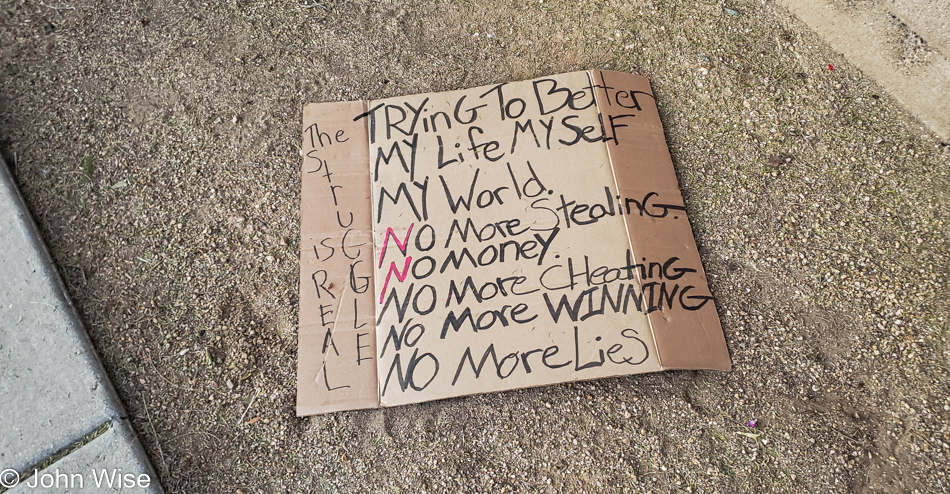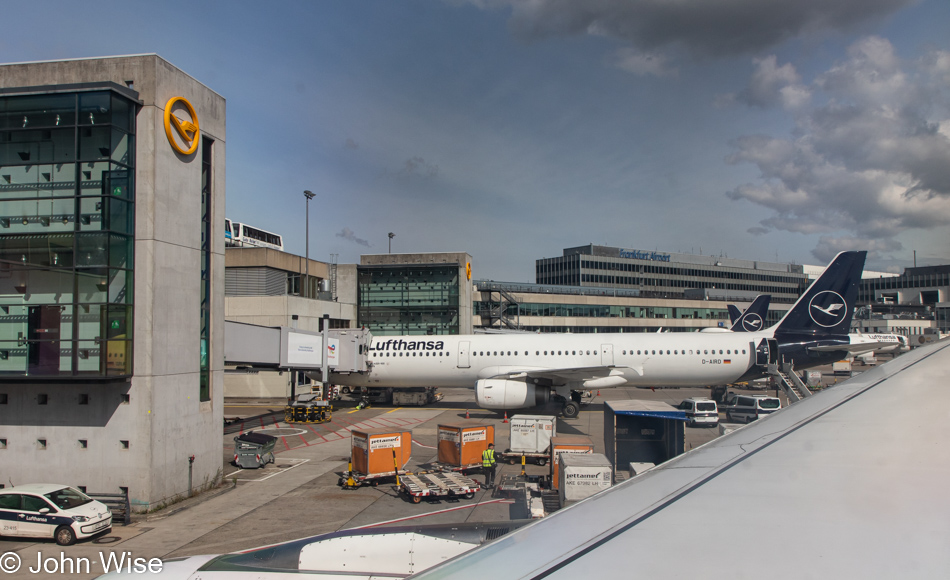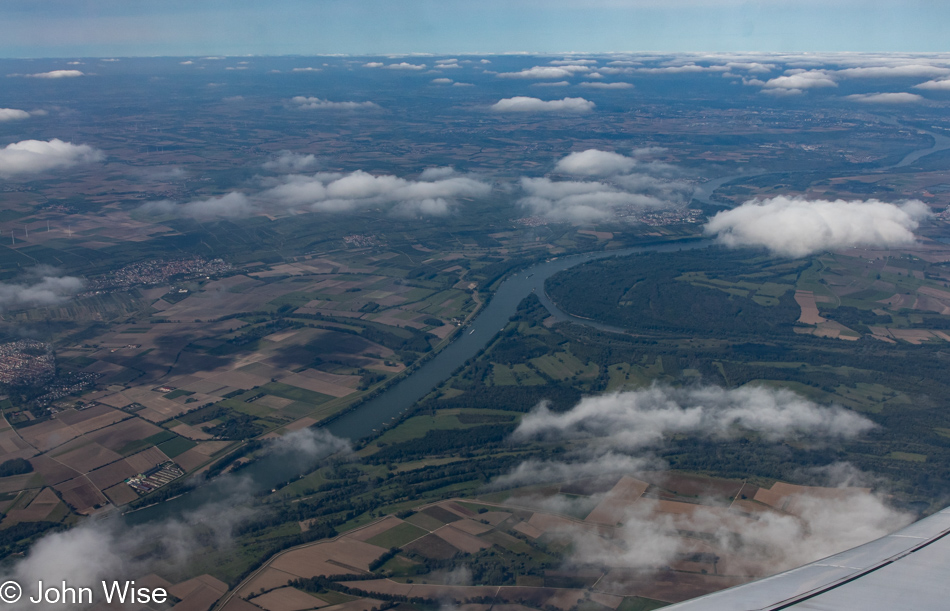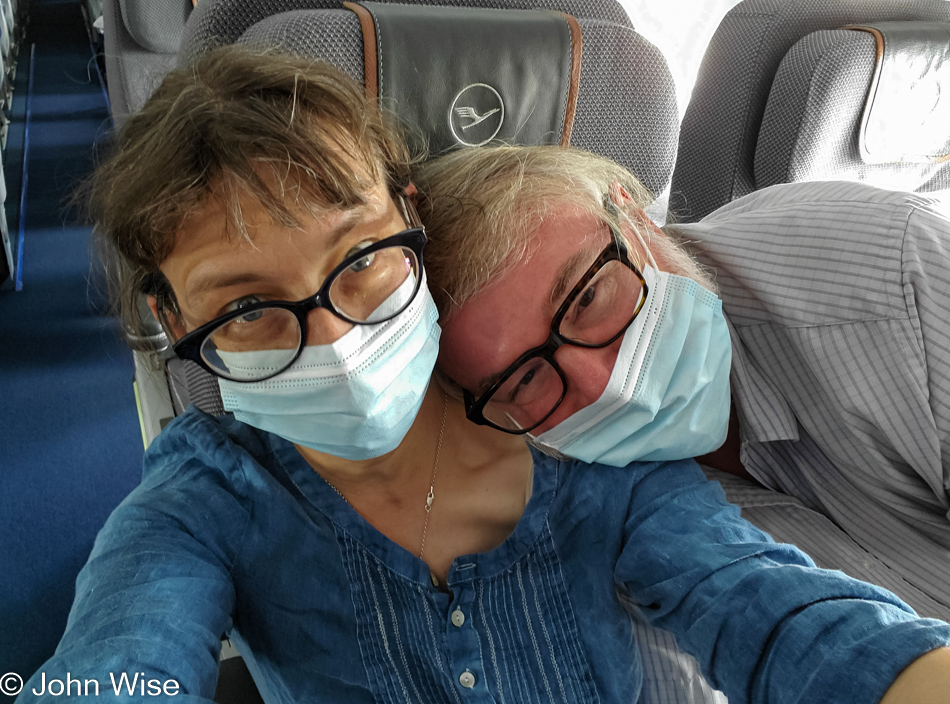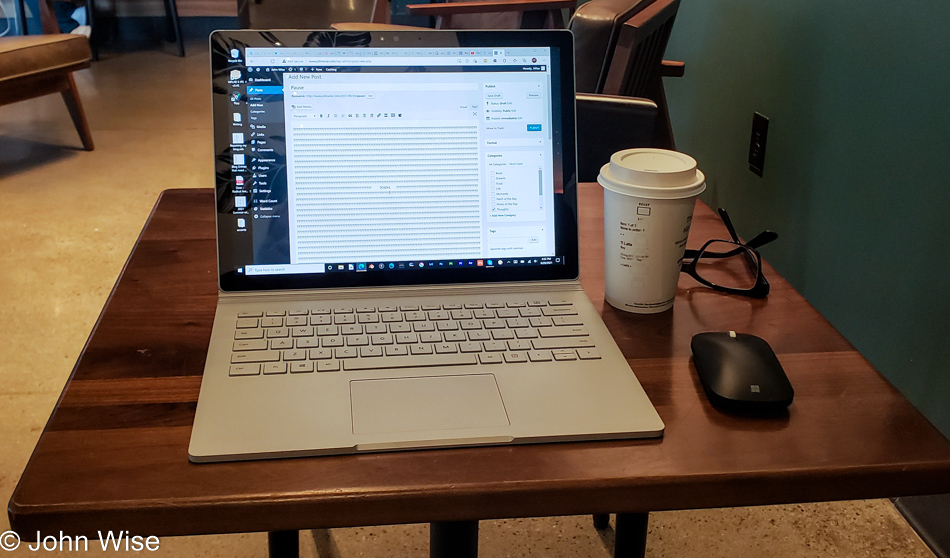
How thick is your mask, and what does it cover? Are any of your features apparent to others? And I don’t mean your physical attributes; I’m asking about who you are inside. Are you a cartoon, an aggregate of elements culled from the media, a buffoon mimicking contrivances delivered to a shallow brain, or are you a reflection of conversation, love, experiences, and ambition? In our travels into the self and encounters with others, we present a variant of the person we anticipate someone else expects. In effect, we bow humbly and await the cues from the other person, trying to quickly learn who they might be.
If we are a narcissist we bypass this convention and squash the stranger with demonstrations of our own greatness instead of learning something of them and then lofting them to a position of importance. If we are fortunate, we might know something that could bind us together in a moment of symbiosis where this person just encountered is able to enthusiastically identify with us to explore what each other knows in common.
Sadly, many of these exchanges center around sports, weather, and television shows. These are the lowest common denominators of cultural exchange and amount to nothing more than trash swapped between strangers. We certainly cannot know all things for all people, but our curiosity is potentially boundless unless we are hiding behind the mask of fear, where we might expose not our face but our ignorance.
As for me, I’m flying directly into my unknowns, and while I may have been in a place where my lack of knowledge was vividly on display, I do not shy away from embracing new awkward situations, returning again carrying new curiosities and demonstrating the ignorance that is alive and well in my naivete.
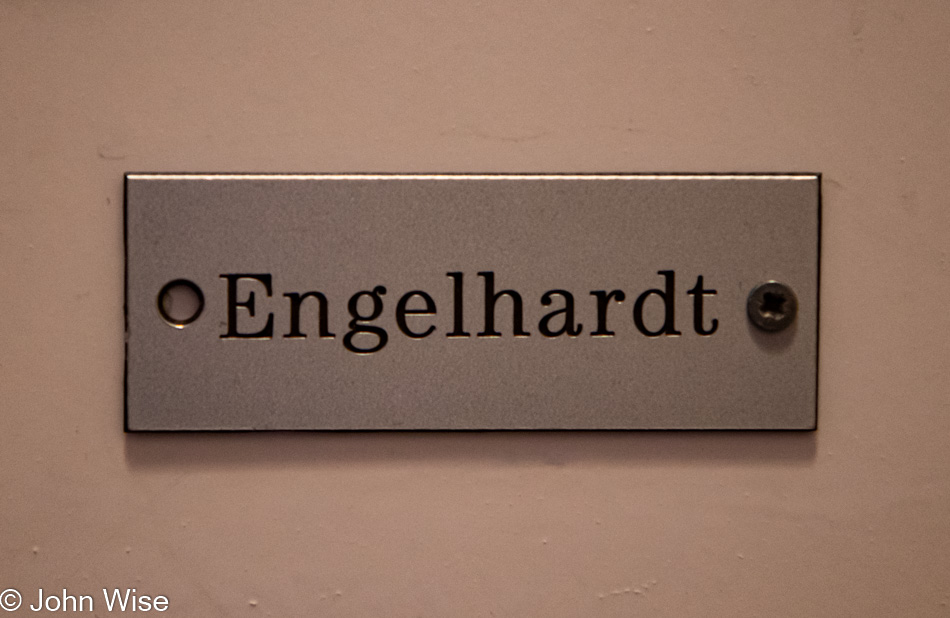
Names of things are temporary and fluid, even when made of steel. Everything decays; everything becomes something else somewhere in time. The only certainty we know is that things will change. However, the denial of such a basic tenet runs rife in our lives the older we grow. Wishes for things to remain the same are delusional aspirations of lazy minds afraid of potential futures. What does that future hold? Certain demise. How do we prepare for this ultimate transfiguration? Peel off the societal and self-conditioning masks, change the name on the door, and get out of your soul’s way to wander into the unknown.
Go ahead and lament the adaptability required for existence while simultaneously honing your ability to find something to complain about so you may lower the conversational bar with others who are equally disappointed in life and thus provide them a kindred spirit with whom to commiserate. You are now serving a purpose, reinforcing the tragedy of existence instead of helping celebrate optimism which is certainly more difficult to find in our society as it is hiding behind walls, doors, fences, and masks.
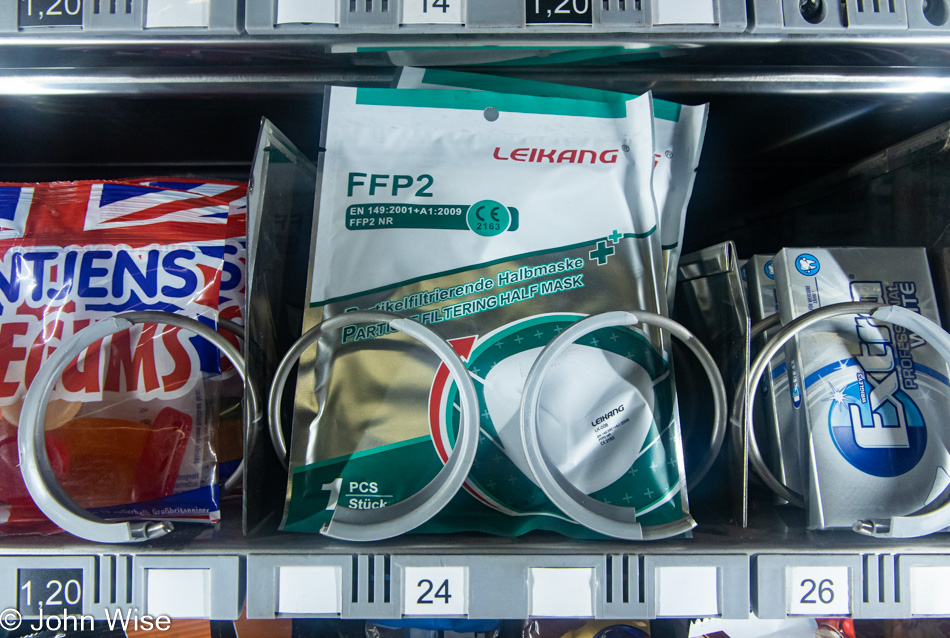
If you see a mask in a vending machine and conclude that we’ve taken the pandemic too far, you have failed to see your own mask of anger that you’ve construed as being an authentic, real version of yourself. If you watch professional sports and find yourself intertwined with the statistics and celebrity of this or that manufactured bit of commercialism, you are wearing the mask of that identity just as you would be wearing a mask of nearly anything in which one could be interested regarding popular consumer society.
Take me for example. I’ve worn the masks of various genres of music, photographer, entrepreneur, film buff, cook, soldier, and a confused, angry young man (now old) afraid of my incompatibility with the masses. All the while, I was searching for authenticity, afraid that I was nobody without the camouflage I was adorning myself with. If we are unfortunate, we never grow beyond the fixed selections within the internal vending machine we set up within ourselves. We simply keep offering an endless supply of each item we’ve stockpiled.
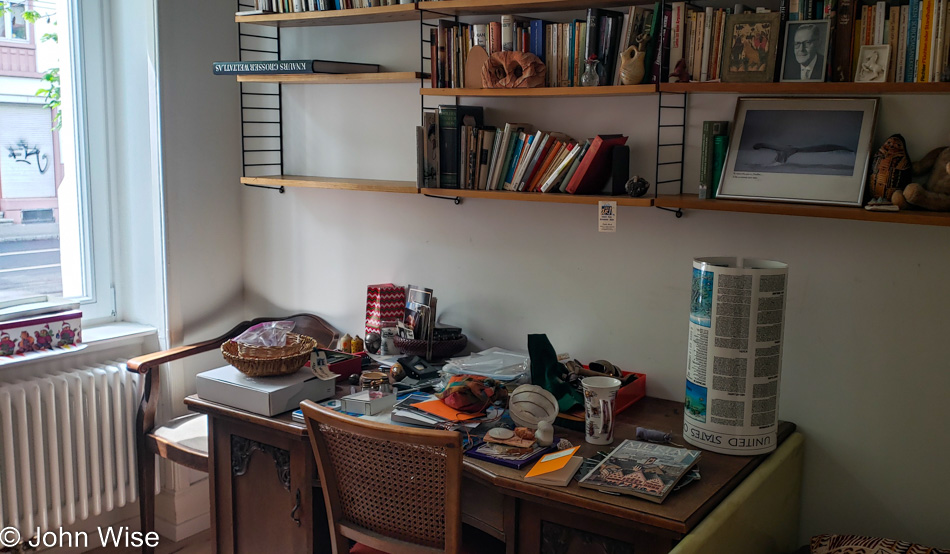
A sand dollar sits atop a piece of petrified wood. Postcards, Hopi pottery, a mouse figurine, bells, books, and opera glasses are among the things collected on various excursions into life. A photo of a father is nearby, as are toys from children and a painting one of them made while growing up. All of these things no longer have a home and are now abandoned as the previous owner left them here with no special instructions for their future. Apparently, they are no longer needed as the mask of the past must be relinquished to make room for the end. Death will not accept our facades; we enter naked and without any of those physical things we collected during a lifetime. When you ready yourself for the exit, you will only be allowed your memories, should they survive the tumult of growing old and the smiles you can bring to the party.
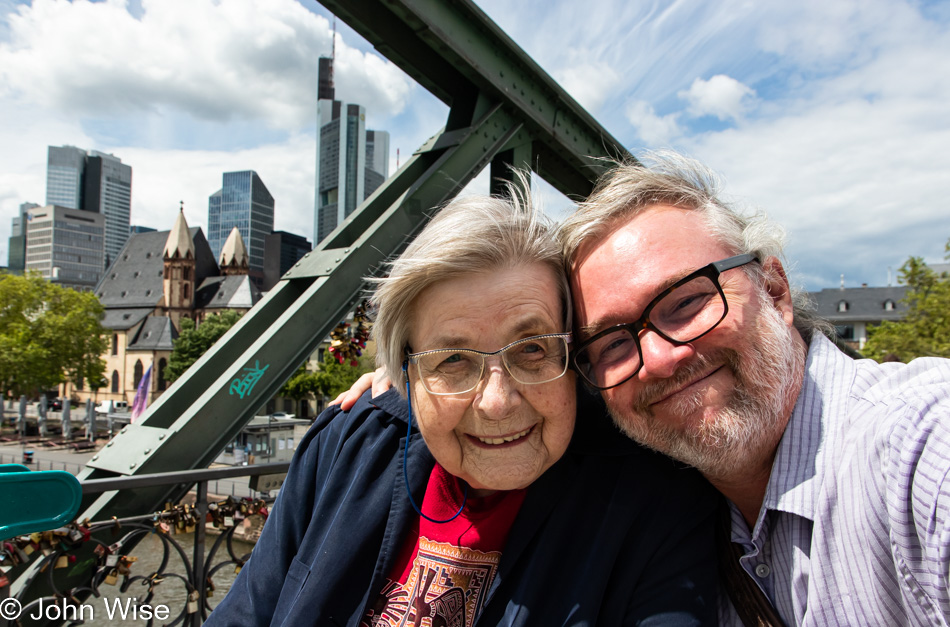
You will not find your mother, friend, wife, husband, or child in things that they’ve possessed. You will not find them in the gifts you’ve offered. Your mother has only ever been a part of your heart and mind. If you seek her where she cannot be found, you will embark on a quixotic journey that has no end. If you are searching for the love you believe is embedded in the past you might have missed out on finding love from her in the moments she tried making that available. Her love was only to be found when you discovered her inner child she kept alive because, as an adult she was unrequited in her feelings due to the hurt of a childhood that was only partly resolved late in life.
Maybe she couldn’t give to others from her heart, though she wanted that desperately, because the pedantic woman, who needed to compete with ideals not her own, stymied her along the way. She needed others to love her first and accept her in all her faults because that’s what her mother denied her. She did not learn by example, and for that, she was emotionally crippled. Your mother is a friend of mine I hardly know, but I do know her deep, heartfelt love for her children and her appreciation for her friends and family who love the woman who’s been a part of our world. She will never be able to do right by others as her goals and dreams for them were hampered by self-doubt. If you want to find the greatest memento your mother can ever give you, just listen to her, allow her to be weak and childlike, and when you are done just being in her presence, hug her and tell her that you love her. Now walk away and know that this is the greatest gift of shared love you can offer this sweet old lady and the best memory you will ever carry with you.
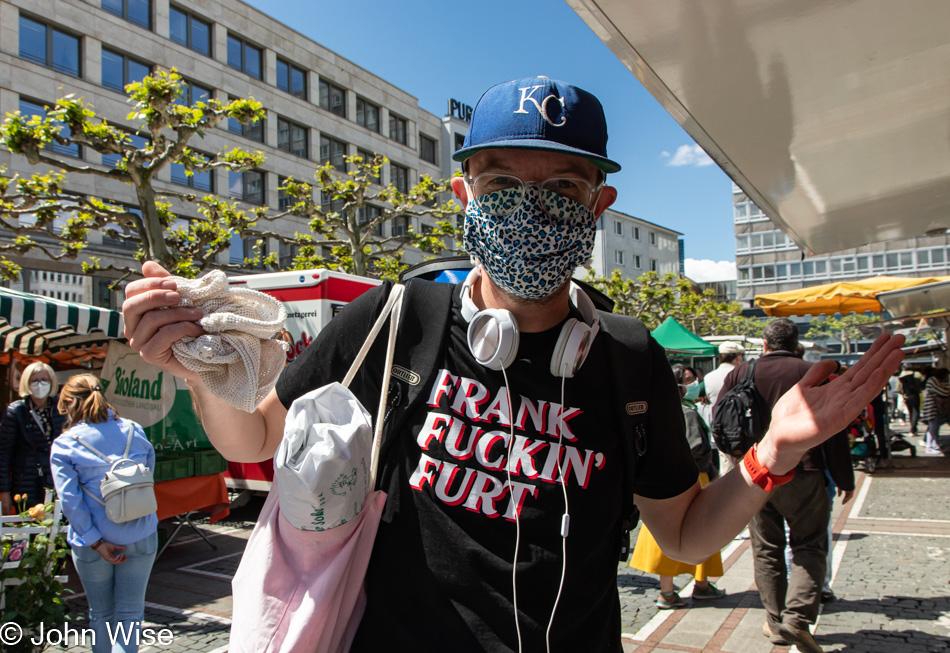
Try it on, distort it, mix things up, and make people ask questions about what any of it means. Nobody has all the right answers for any of us, but it never hurts to learn where others have been and where they might be going. So we must stop, say “hi,” move away from our own bias, and accept the bold differences of those operating on their own unique frequencies.
Euripides is credited with saying, “Question everything. Learn something. Answer nothing.” Twenty-five hundred years later, James Patterson wrote, “Assume nothing, question everything.” In these intervening two and a half millennia, while many an invention and convenience have been brought to our lives, the wisdom found in change has often been eschewed out of fear that anything that disrupts tradition will ultimately bring collapse. Yet, nothing remains as it seemed. Those things that bore gravity for other generations can fade and must be let go of. If we choose not to acknowledge the differences, we obsess about an ideal that never existed in the first place. This is when we drag the mask up over our eyes, fail at asking the relevant questions, and suffer the ravages of being stuck in time.
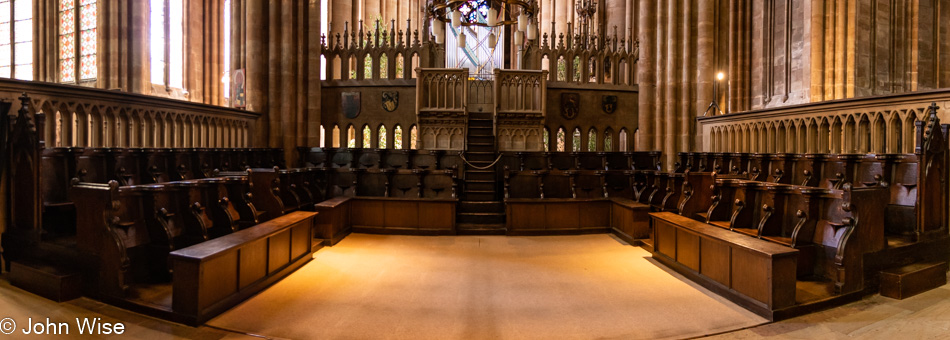
Nobody should sit in judgment of others, nor should those who might observe you hold sway over you exploring yourself. The majority of humanity lives within the ethics and morality that arise out of love. Teaching us not to murder one another is unnecessary because that type of transgression is not an instinct the majority of us are born with.
On the contrary, we need to teach one another the importance of self-love and that there’s an emotional safety net found in community and purpose. When community and family have been dissolved by the pressures of denying the unique characteristics of an individual on life’s pilgrimage into discovery, we as a society break the will to learn, replacing it with the ego of harm. This is not good and evil; this is cruelty becoming hate.
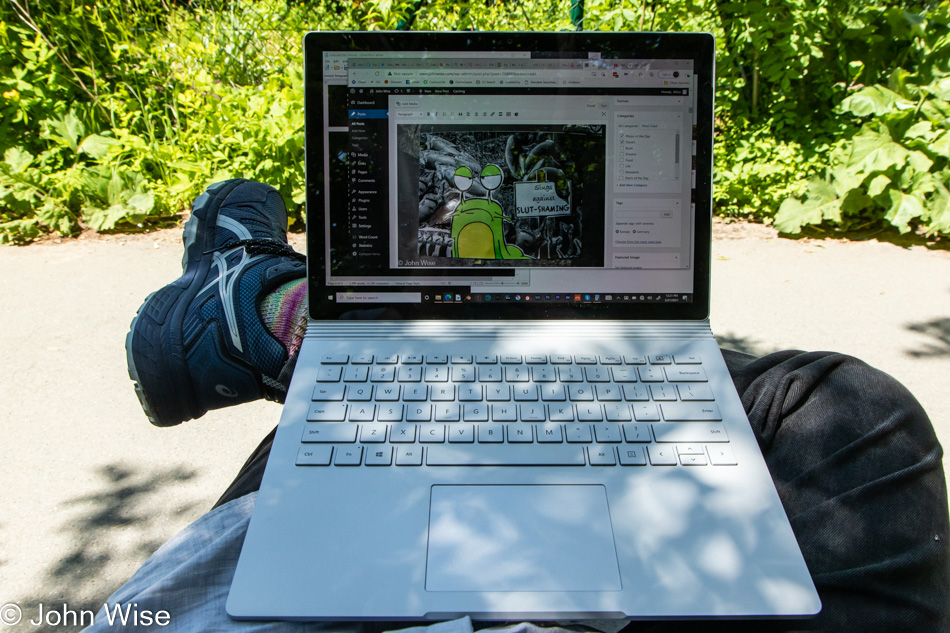
This blog entry, if not evident to you yet, is a hodgepodge of thoughts. It started as an idea in my last few hours in Germany. I assembled one favorite photo from each day of my visit as an index for an emergency go-to post I was going to write if I got bored en route from Frankfurt to Denver, but it turned out that my post titled “The Exit” kept me busy the entirety of the flight. Upon my return home, I had this potential entry with 36 images and no longer felt it was going to be what it was intended to be, nor did I feel like deleting it. So, I grabbed the unpublished musings of half a dozen other posts penned in Deutschland and pasted their contents into this document. The trick of this exercise is to come up with a coherent (within my definition) thread to tie things together.
Maybe if I were to take up smoking again, I could find what I need to start writing this epic entry that lies buried under a shroud of fog. I know the words are within me, and occasionally, I’m able to sequence them into half-meaningful snippets from which, upon reflection and some distance from when they were fresh, I can catch glimmers of promise. But glimmers are not what I’m looking for; I’m in need of raging torrents of flow that threaten to deluge my fingers with unmanageable streams of dramatic meaning I will ultimately drown under. But where does one tap those waters? They cannot be a side effect of cigarettes.
It has occurred to me that I cannot race about and hope to snag a word here and there. I must sit down, planting myself where my center of gravity has the greatest balance with the earth, and then I can write. Write what? Great things, that will be where I start and go rapidly downhill from there. First up, clear the mental plane. I’m once again where I was a couple of years ago when I encountered Horst Fischbach (a fictional character I wanted to explore). Little did I realize that I had only recently finished some travels and was taking my first pause of constant novel stimulation that comes with being in new places. It was unbeknownst to me at that time that this was taking place because I was still somewhere other than home. Being between home and active travel afforded my mind the moment of rest, and although I wasn’t in the desert, I was somewhere familiar enough that I didn’t have the pressing need to be on the move.
Now, after being away for five weeks, the urgency to immerse myself in my environment has taken a pause, and the instinct returns that being quiet also helps me find words. While traveling, I use my frantic pace to push the moments of experiential sights and sounds onto paper, as my awareness of the temporary nature of fleeting impressions has already taught me that much of what was taken in will just as quickly take leave. The larger memory that, at one time or other, I had visited a place, a rich experience I’d basked in, without many of the details noted photographically and verbally via the written word, would be but a pale shadow.
Impressions without strong reminders would allow my collection of me to erode and decay while I forget what I was allowed to construct within me. Doesn’t this hold even more true when we consider that we make incredible efforts to be subject experts in our jobs but are not demanding we become experts of the self? This could be compared to living in a different home with different furnishings every day; there would be no markers of familiarity on a day-to-day basis. Take the church, its stories, images, and iconography: it is the preservation and continuity of those things that have allowed it to survive for centuries. To remain in the minds of humanity for thousands of years, a cadre of caretakers pull the memories and rituals forward. In this sense, I am the priest of John keeping the Church of Self alive in which, on the days I reflect in the prayers of writing, I remember who I am.
On the day I wrote these lines, I was sitting in a pew at a Temple of Bread, listening to the sermon of an Afghan man working through his version of German. The organ had been replaced by rustling bags being filled with various rolls and pastries that allow parishioners to return a bit of the holy sacrament to their homes to continue traditions that remind them of themselves. We call this breakfast. The choir was faint as the leaves were disturbed by a light breeze, thus not overwhelming the rest of the service. Communion for the congregant is finished after the blessing of “Sechs Euro Fünfzig” is spoken.
Enough of the observations in the bakery; it’s time to feast on the flesh of God. In some small way, as I accept this offering of nourishment, I consume my older self. I have no way of knowing how and where the waste I’ve left behind has been recycled into what I’m eating today. The cycle of recovery and redistribution has occurred many times over the previous 58 years since my first defecation when my fecal matter was used by a plant or animal to nourish something in the food chain before ending up on my plate again to repeat the process of returning what I am to the earth and consequently, it returning to me.
Do not attempt to tell me that this is nothing but food that is not imbued with God nor John. You will not convince me that it is lifeless, inanimate, dead matter. When a thing no longer consumes energy, it must have perished, and yet here it is, ready for the minions of flora thriving in my gut to accept it, thus beginning the slow process of harvesting its vital energy in order for me to live. These things that existed in a life cycle were put into a state of suspended animation, awaiting their destiny. Oh, but wait, not only were they processed, packaged, and prepared, they must now be masticated, digested, and excreted before other life in the form of bacteria process this product I no longer have a need for into yet more food and will once again feed a system in perpetual motion.
Similar to the cycle of repetition I reference above, I hear, create, and consume words that the microbiome of my mind will masticate, digest, and excrete for the reader to consume. My thoughts then become the written feces others will use to nourish their own mind. At the end of these locutions, the reader is gifted not merely with shit but with a richness in diet that will sustain the health and well-being of their own imaginations. Of course, I must take into account that the recipes I use are archaic in their long-winded form and use exotic ingredients not suited for all palettes.
What I offer is not for the junk-food-minded but for the gourmet, the devout, or maybe just my fellow sanctimonious zealots who revel in the high ideas that we are humans and not blades of grass fertilized with the manure of sheep.
For weeks, months, years, and decades, I have been searching for the most diverse oblations that feed all elements of my soul and body. I am not one to subsist on fodder, though as quickly as I wrote such a half-truth, I must admit that I, too, have consumed and will continue to do so, such foul materials that pollute the trough at which we lap up the fat sugary treats that bloat our being. While I aim to be a God within my own church of me, I do recognize the limits of my mortal being and accept I am with faults.
The wind blows, the choir offers a hymn, a child cries, that’ll be “Sieben Euro Zwanzig.”
The cigarette I considered was wholly unnecessary as the thurible of the bakery offered an aroma that wafted over me, alighting my imagination and propelling my fingers to do the peristaltic bidding of a mind trying to purge words that were no longer sustaining me. Time to walk through the narthex of what’s next here on another day of our Lord.
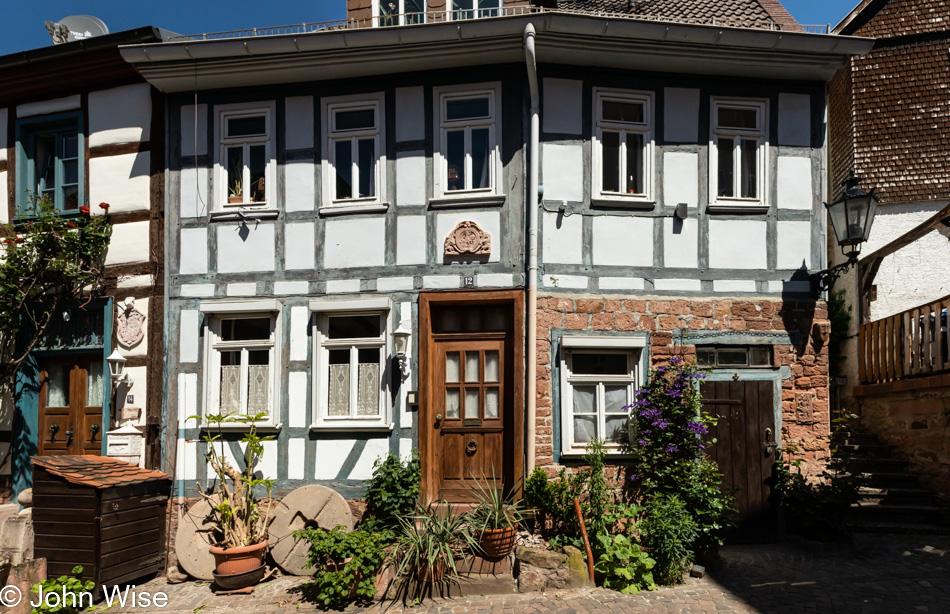
Excuse me, but your house appears irregular with lines that are not perfectly parallel, and what’s up with the brickwork as part of your facade? I can’t understand why symmetry wasn’t at work here, and is it an optical illusion that there seems to be a kind of angled point where the walls meet behind the drainpipe? Maybe this was two units in a previous age? Obviously, the wooden door in the center is no longer used. With the plants on the steps, it’s not very inviting to knock on that door, so the door on the right has to be the entry.
I’d wager that the inside is as charming as the outside, and with three floors of such delight, this is what you might expect for what would cost you at least $1 million. Now imagine this house that is likely about 500 years old or 90 years old in human years (yes, I’m taking license with the dog-years analogy) was representative of how we saw our fellow elderly humans. The unique appearance lends character to a community of cookie-cutter people, and instead of pushing aside these wonderful attributes of aging, we valued them to have greater desirability than the bland new buildings down the street.
People, though, are not real estate, you exclaim. So, maybe you try to consider that the experiential landscape of people can often possess a breadth of wisdom larger than any house. Now ask yourself what is the value of that structure. Once you take this into account, you will see the priceless nature of the history and artifacts hidden behind the old walls that have been there forever. But a person is not furniture you can capture and keep in a room; you must know them and find a place for their being in your heart and mind. The fact is that only those with whom we share deep experiences gain access to our innermost thoughts and memories. It is not enough to admire the facade, even one that is new and shiny, without anything of value beyond the front door, and yet this is exactly what we do when we put youth on a pedestal.
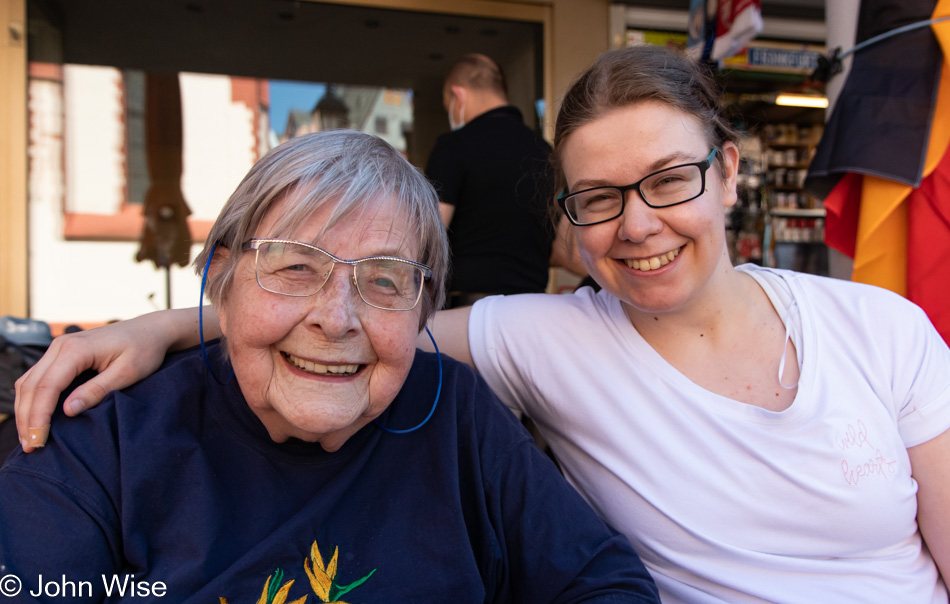
How does the young person who’s not yet gained maturity handle the expectations of a society that wants to see our dreams and ambitions realized by them? Our own failures at being whole people are shrugged off due to circumstances we refuse to acknowledge, meaning we didn’t try to overcome ourselves, our mistakes, and our unevolved biases. Then, with such personal and societal missteps, we want to burden our children with accomplishing the impossible tasks that are made more intractable due to our failure to tackle the truly hard work of managing our place on this planet and with each other.
Our children and young adults are being victimized by the oversized aspirations we have for them. They, too, are uncertain, frightened human beings, guided by adults who had to stop caring or lose their minds to the Sisyphean task of overcoming their own baggage. Society is creating impossible parameters for each generation that often culminate in personal defeat. With our current intellectual and machine intelligence, we are likely on the verge of breaking this yoke of emotional terror, but such a monumental task will require a reinvention of purpose that might only arise in the ashes of a catastrophic breakdown of community unless some kind of guide inspires people to awake to the harm they commit in the name of wanting to do good.
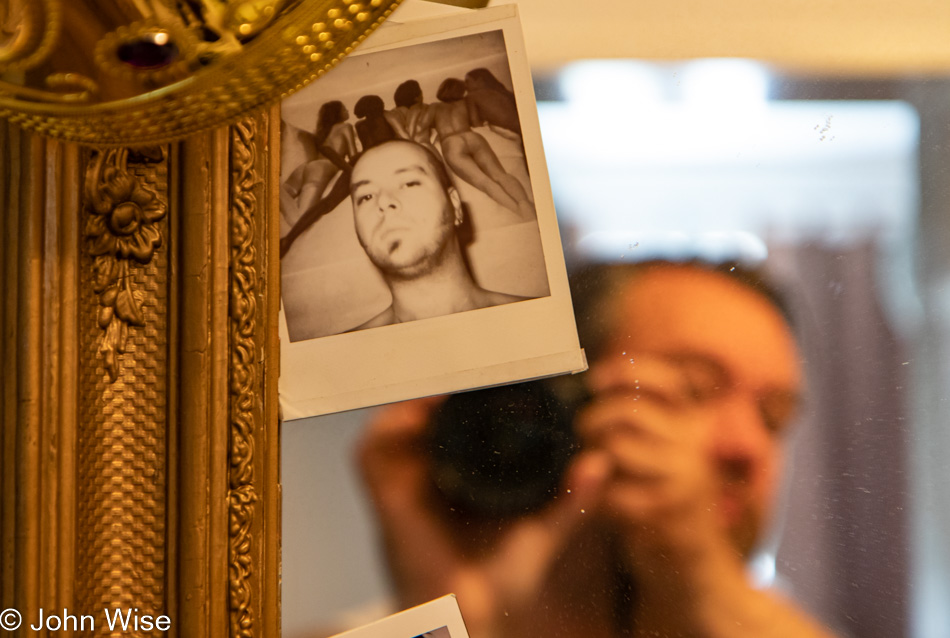
Look at yourself; look at your former self in the mirror after taking a snapshot of who you were yesterday and a lifetime ago. Are you clear to yourself? Do you know who you are looking at and who’s looking back at you? Are you one and the same? Did you become the image of who you thought you would be? Chances are, the reflection is out of focus, and at best, you can see glimpses of moments that stand out of the millions you could have captured while in the world of experiences.
Discovery is a slow process that requires the explorer to gather the tools and resources to be able to offer meaning and documentation to what’s been found. How do we demand the profound from those who are new to life while we hide behind a false self-confidence that is really nothing more than another mask hiding our own failures?
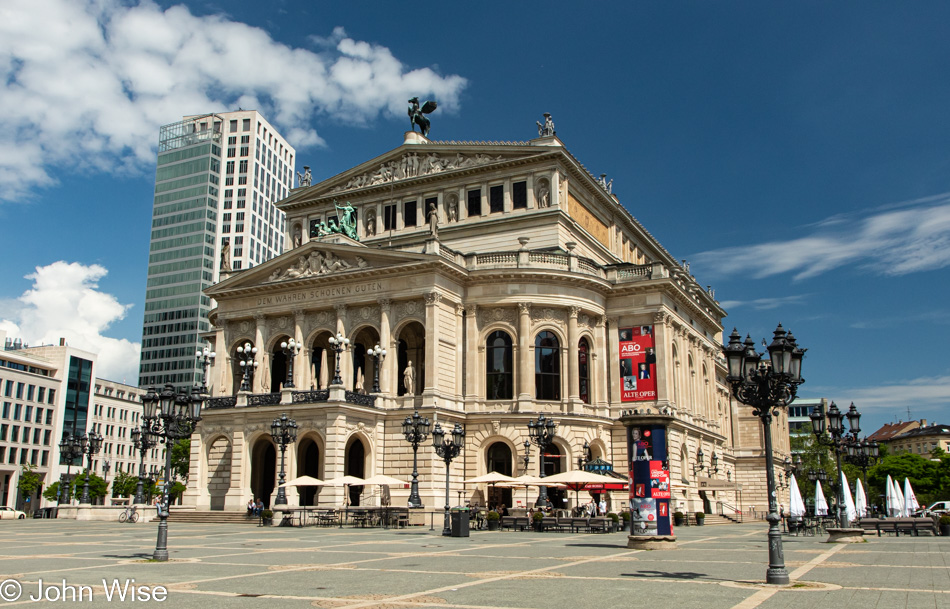
Architecture demonstrates the strength of the individual and the community. While humans cannot survive themselves and their personal weaknesses, our buildings stand as a testament that our ancestors and contemporaries were able to overcome the fragility of mortality while their human form crumbled in time.
But we all know that the greatest of monuments will also fade as the march of history grinds forward. As those constructions turn to dust, we either choose to rebuild or remove and create anew and so it must be with the structures (culture) held aloft in our group sense of progress. Our minds are architectural constructs pulling forward histories that, at times, must evolve to recognize new building methods that supersede the primitive ideas that once worked for us.
And what about when war claims our sense of permanence? Like the bombs that destroy architecture, we require artists, thinkers, inventors, and other creators to disrupt, derail, and effectively bomb our complacency. Then, in the newly constructed palace, to our perseverance, we host a creation that celebrates our rediscovered imaginations with which we can create something from nothing.
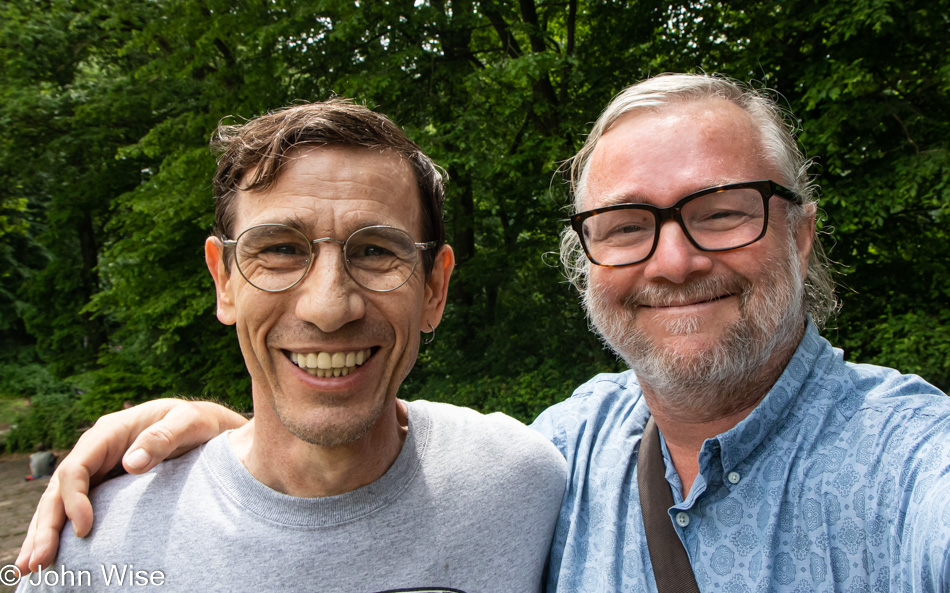
This then poses the question, how do we find that which was lost in the nothing, and how do we share with others that exploration in the realm of the void will potentially deliver profundity?
That is a really difficult question as it deals with a rare earth metal called curiosity that few of us have found. The masses use raw and visceral information as a bandaid for minds incapable of assembling the bigger picture where the universe of infinity is unfolding. Desiring to be consumed by uncertainty, recognizing our own limitations while putting on display our awkward stumbling into ignorance shows our vulnerable and mushy inner selves. This is not a persona most will feel comfortable inhabiting.
Deep exploration of imagination and cultivating the intellect can be a long road into the suck, but like Army Reserve Colonel Austin Bay is known to have said, “Embrace the suck.” You, your family, your friends, and those in your community are not your careers. You are not intrinsically a police officer, doctor, barista, coder, or plumber, nor are you a mother, father, son, or daughter; these are all amorphous roles that should evolve while supporting the emotional and creative development of those around you.
Stopping at any age to dwell in the familiar is the equivalent of dinosaurs stuck in tar. Sure, you can stand still, and if food is near enough, you can eat and pretend you are not doomed, but to the outside observer, you are going to die right where you stand sooner than you might think. This death in our era is demonstrated by the cessation of curiosity to know and explore those things that suck and are difficult. Sure, I can watch you stand there insisting your life is great as you sink deeper, or I can take inspiration from those things in motion and change all the time. I choose to be in motion, and I’m open to change; my curiosity remains at my beckoning to show you just how little I think I know.
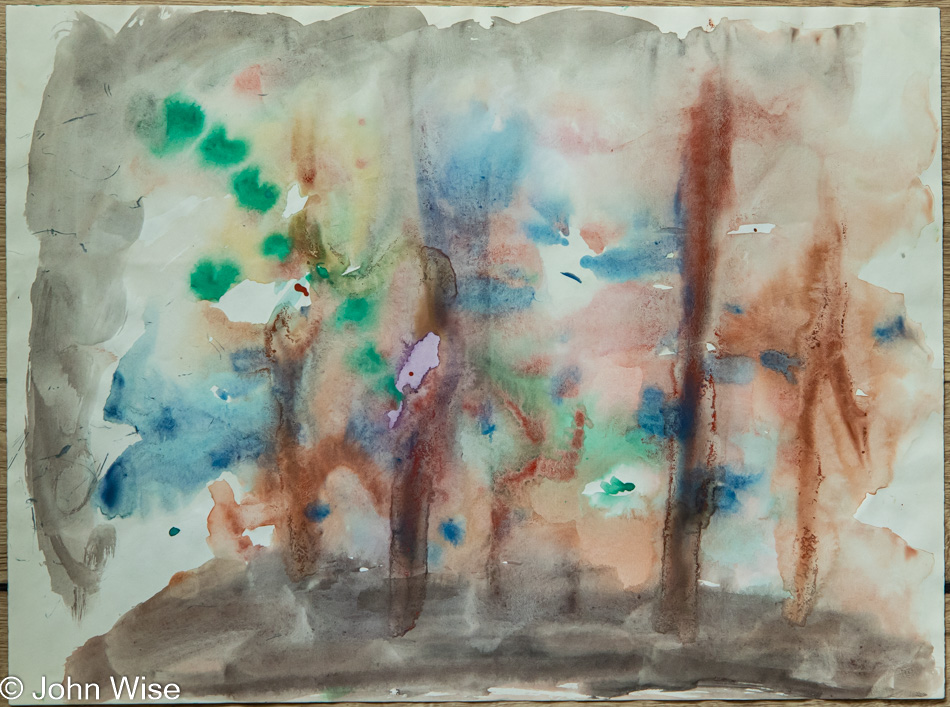
My wife and best friend dropped this out of her imagination when she was nine years old. It was 1977, and her curiosity was such that abstraction all of a sudden jumped out of her consciousness. I know this because the body of paintings she created before this was often focused on horses, people, and landscapes.
Two years ago, she and I were in Dubrovnik, finishing a journey through Bosnia, Montenegro, and Croatia. We were contending with a landscape previously unknown to us as we rafted and kayaked through a different kind of abstraction where food, language, and paths traveled were unfamiliar. As I write this, it’s 1:15 in the morning where she is in Arizona, and 4 or 5 hours before she’ll wake. I smile as I think of her here in Frankfurt at 10:15 a.m. and bask in how her influence, even while she sleeps, affects my waking hours on the other side of the earth. She may be dreaming in abstractions right now, and I might be a part of her exploring restless brain that never stops working to digest the vast diet of things she brings in. What ties this together is that we both have a curiosity about the other and a raging desire to feed imaginations that still feel insatiable and often as innocent as the one that painted the image above.
What we are able to construct on the canvas of our lives is not a lot more than splashes of paint that will fade in time, but at the moment we commit our imagination to action, we make the statement that this was who we were at this point in time.
This triggered something that now reads so very obvious in my mind but didn’t prior to the realization. We are no longer focused on the repetition of encountering ourselves, our environments, or our community on a daily basis. We are in motion and in the perpetual hunt for novelty as though the newness of everything will deliver something meaningful to us. This is wrong.
It’s all so apparent now that we gave up small communities, relationships in tribes, churches, and even our families so we could remain in perpetual motion. We are breaking ourselves into something we are not.
We are traditions and familiarity, except modernity doesn’t allow this archaic form of humanity to coexist when consumption rules a culture on the move.
I think of this as, once again, I found myself writing what I thought were inconsequential ramblings of a man finding self-importance in listening to more of the same. I return to churches again and again, looking for the voice of a God that is supposed to be present, and I travel with the hopes of discovering the place that satisfies my soul in ways that will transcend my sense of being lost.
I’m lost because I no longer hear the stories and traditions of my people, I no longer live with a familiar group of others, and I certainly don’t pray on a day-to-day basis. But somehow, I have awoken to the obvious flaw that my need for novelty has been my foil the whole time.
My writings are always iterations of things I’m certain I’ve said before but with a slightly new spin that I hope might illuminate a thought I’m failing to capture. There it was, staring right at me in all of its redundancy. I’m writing to connect my inner tribe of experiences so I can better know who I am and the culture to which I belong.
While this modern landscape of John is vast, I can, when curious or in need of something to ground me, return to the images and stories of that time my wife and I went to the Balkans, rafted the Colorado River, or revisited Oregon for the 8th time. Our village elders cannot share the experiences that were had in the past because we no longer live in that type of community. We have to be our own elders, but how does one do that when a billion other experiences compete in a hierarchy of what’s important to a human?
We, all of us that make up the “we,” must turn ourselves into storytelling machines that also capture the art of what our eyes have seen in nature and from our experiences, travels, and various other moments. This idea of blogging is the continuity and subject matter expertise of self, family, and friends that can put humans back in the center of their narrative-based universe.
Blogging is in so many ways, similar to prayer. We repeat our prayers to affirm our commitment to God and the knowledge that has been given to us about our maker. School and careers demand the same attention to becoming subject matter experts, but when it comes to that kind of familiar constant relationship with you and your experiences, they are mostly lost fragments scattered between elements of Game of Thrones, a basketball game, the divorce of Kanye and Kim, drunken escapades in Vegas, and a jingle from an ad that ran during an episode of Teenage Mutant Ninja Turtles.
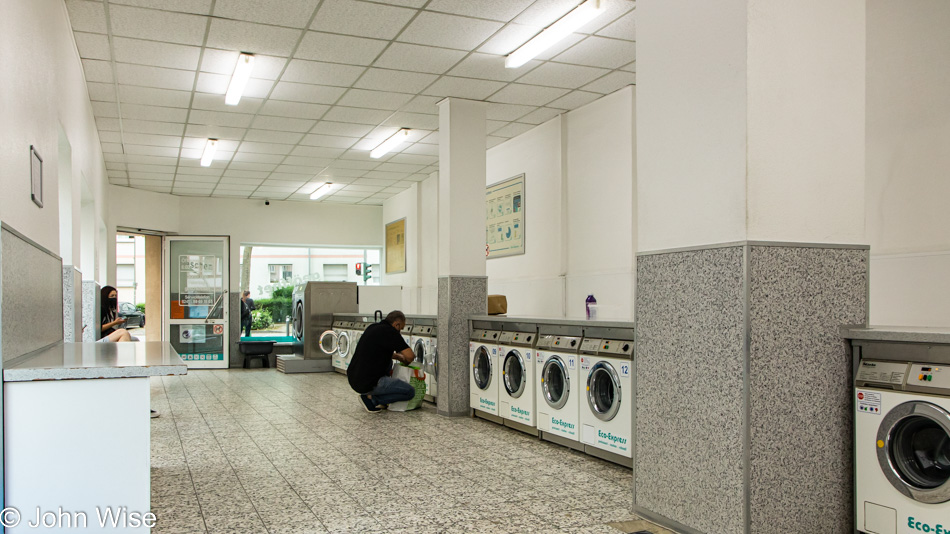
Restoration and rehabilitation might seem normal for cars, paintings, homes, clothing, and antiques, but how many of us are aware of the need to shove our own minds into the washing machine to rid ourselves of the accumulated grime and stench that accompanies heavily used items? It’s okay to rebuild, patch, clean, and repair the aging jalopy in your head that’s been powering you through life. It may not be new again, but you’ll likely feel better about its appearance and the tune-up that allows it to run a bit better.
Stains and dents are too often considered the price of use, but with a little effort, they can be cleaned away or repaired. The stains and dents I refer to are our biases, silly beliefs in conspiracy, and continued reinforcing of mantras of fear. Education, reading, travel, adopting new hobbies, and bringing in new music, food, and art can act as the bridge to the daily bathing of the inner self that’s always at risk of ossification.
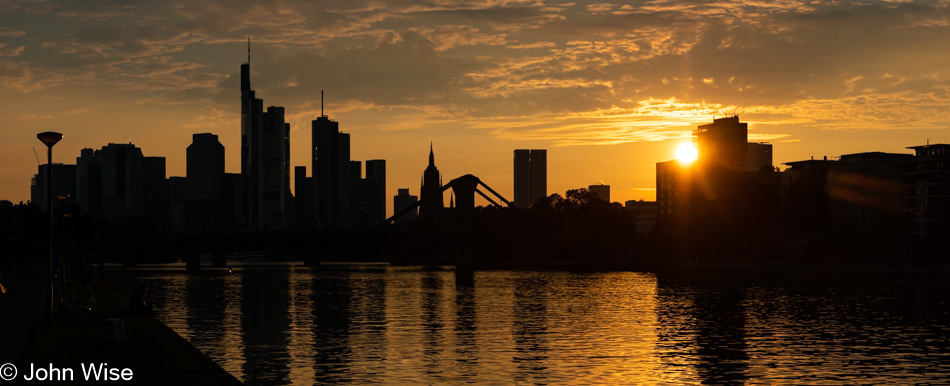
The sun comes and goes. The day gives way to night. The waters that ran through here are long gone, replaced by the water from elsewhere. The memory of these things creates a continuum, and so it is with our own memories and our ideas of self. But what if tomorrow’s sky looked exactly like yesterday’s and all the days before that? Our anticipation of discovering a new day would likely be diminished. What if tomorrow’s mind looked exactly like today’s, yesterday’s, and all the days before that? Well, that’s what many of us live with. If that can be called living.
You and I are not permanent and should not strive to be the carbon copy of the person we were the day before. Let the fresh waters run through you, and new clouds form before they dissipate to become clouds for someone else to enjoy. Our imaginations and expectations need to remain in flow if they are to continue their healthy roles in our lives. When the scenes of nature and self are changing, we can be gifted with the surprise of spectacular sunsets and journies into places unimagined that fill us with the sense we are witnessing the awe-inspiring.
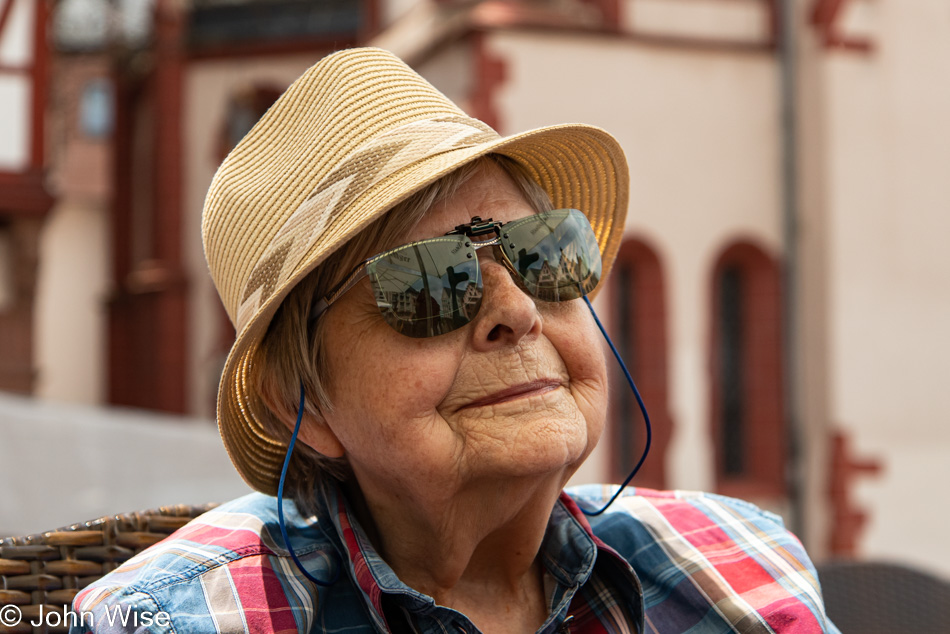
The sun falls on your face, and some of that light that bounced off of yours spills onto mine. A smile spreads from you to me. Will your wisdom also find its way to me? I sit here outside in the pleasant weather of the pleasant city with equally pleasant company, but am I here to be with you, or am I here to entertain you and distract you from your loneliness? It is not guilt that brings me to you; I cannot gain favor by offering you my time. Either our shared moment is mutually beneficial, or one or both of us will resent another uncomfortable encounter where our minds are preoccupied with the desire that we’d rather be anywhere else.
Instead, the two of us bask in amazement that someone else cares enough to spend part of a perfect day with the other. At the crossroads of friendship and respect, we became equals, although we may be worlds apart. What was it that created this possibility in the first place? How does an in-law bridge the divide that seems common amongst us adversaries? Curiosity was the answer that brought us together. Not having all the answers for each other but a willingness to explore the world and possibilities paved the road for us to learn about our commonalities. And so we sit next to the soothing river on a perfect day in a pleasant city and continue to share the wonder of what can be experienced when we have others around us.
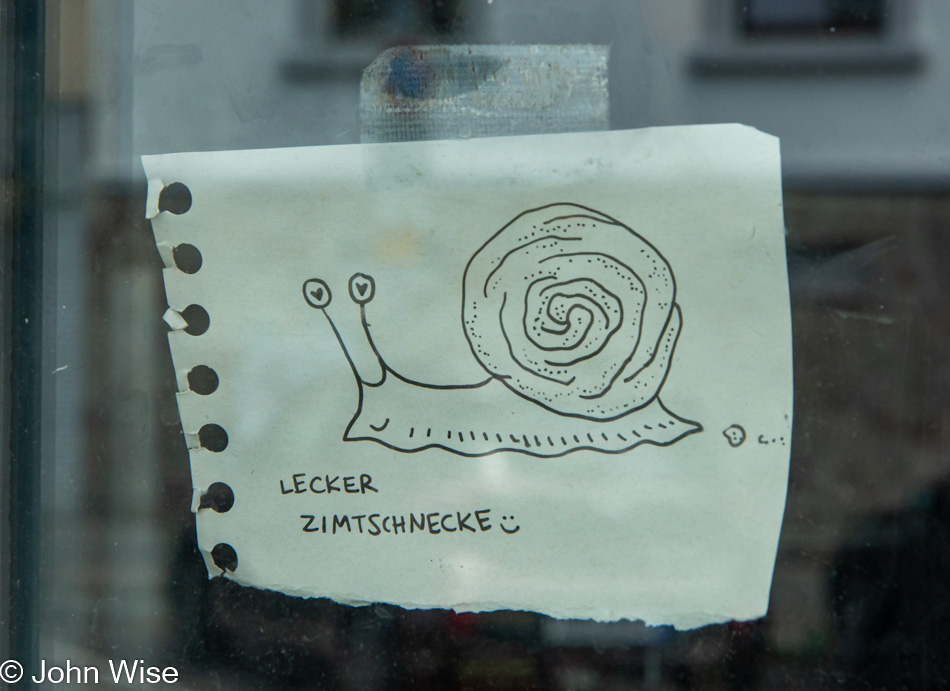
Even when others we love or care for are not in our immediate proximity, hopefully, they have a place in our hearts and memories. Maybe I’m a bit pollyannish, but I try to see some positive contribution from the many people who’ve passed through my life, even those I’m no longer fond of. Somehow, everyone I’ve ever known has contributed something that helped me become a better person, and I don’t mean just those people I’m still friends with.
This “Yummy Cinnamon Snail” was a trigger for me to smile at my wife, who was 10,000 kilometers away, when I glanced at the drawing in the window of a small cafe on the streets of Frankfurt, Germany.
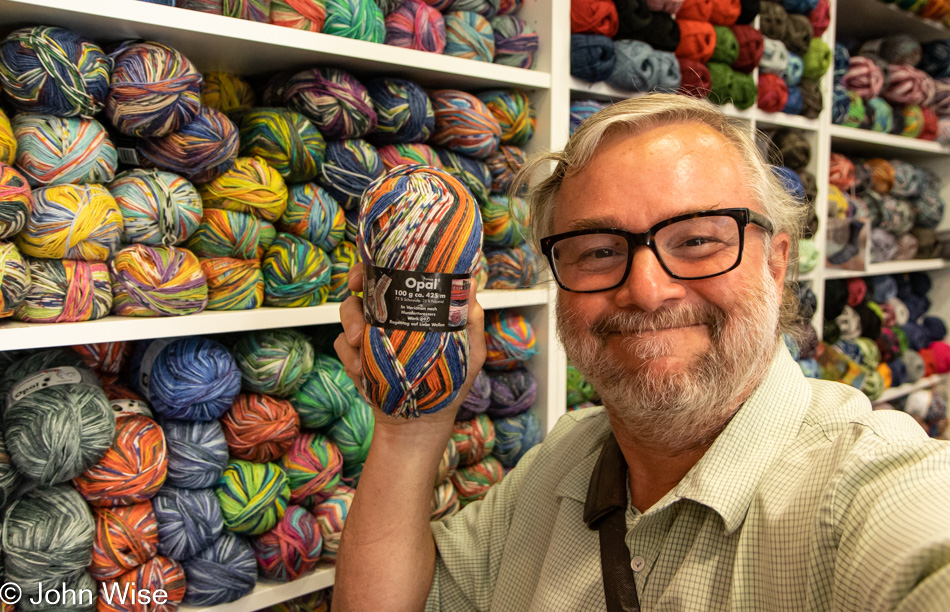
The threads of connectivity run everywhere for me as I can’t seem to cut the ties between those I know, those I don’t know, and those who hate me. From Scott H., Adam M., Jonathan R., Kirk M., Jochen L., Jack P., and certain family members, there is no love lost from their point of view, but the magnanimity I feel just goes on and on. If I tore away all the ugly threads that create the fabric of John, my tapestry would have gaping holes where mistakes were made.
Selfishly (this might have contributed to the breakdown of friendships), I want to be a whole person, and while I can be the first to admit I’m flawed, I know that if I can recover from my stumble, I might be able to keep on smiling. The alternative is to grimace, grow bitter, and want to hold accountable all those who wronged me. Instead, I’ll just grab a new skein of yarn (an opportunity to gather experience) and get busy tying it in knots to the waistcoat of me (I don’t knit or weave unless I’m referring to my writing).
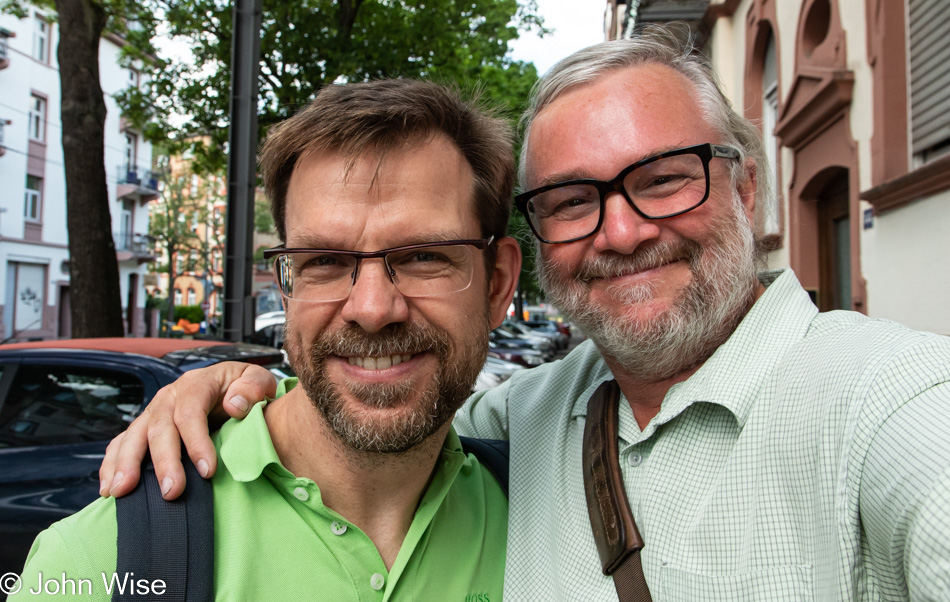
Where’d this come from? No, I’m not referring to the man next to me in the photo as a thing, but that, after knowing each other for more than 20 years as distant in-laws, we are starting to make some connections that move us away from de facto relatives to the beginnings of a friendship. I think.
Time can be the rarest commodity for those living with intention. Just as one doesn’t travel to New York City, London, or Tokyo for the first time with the express purpose of languishing in a hotel binge-watching Star Trek with McDonald’s being delivered to their room, we shouldn’t be so cavalier to waste our precious moments. Klaus and I only now have been able to share some time together and, while in all honesty, we may have little in common in some regards, we both love being outside, walking, and biking. Well, that’s enough of a start to lend intention to exploring where this might go.
Back to what I mean about living with intention. I do not want to live an accidental life where remote control, lack of a plan, or too many video games erase the opportunity to find meaningful encounters with discovery and knowledge. I can’t acknowledge my intention without giving a nod to my selfishness as I cherish my moments when I can fall into learning to cook a new cuisine, read up on something like the Song of the Nibelungen, explore functionality in a synthesizer, or bone up on my nascent skills in a piece of software I’ve been promising myself to dig into. Travel plans have to fit in this mix, too, because if dreams of future destinations didn’t live an active life in my imagination, I’m afraid I’d simply adapt to standing still.
And so, I live with active intention. Don’t construe that I’m perfectly adapted to this ideal because I’m by no means perfect and all too often find myself squandering my time, but by eliminating certain potentialities such as tossing my attention into professional sports, television, or video games, I know that those are hours that I’ll have to fill with other activities. Here’s where my selfishness shines best: I don’t care about the weather, superhero action films, comic books, anime, football (American or European), some temporary influencer or celebrity, psychopath of the day, or a new model of car, appliance, or device. I do care about sharing my time with others who will challenge my many facets of ignorance, walk with me, or take my imagination into a real story from out of their own experience.
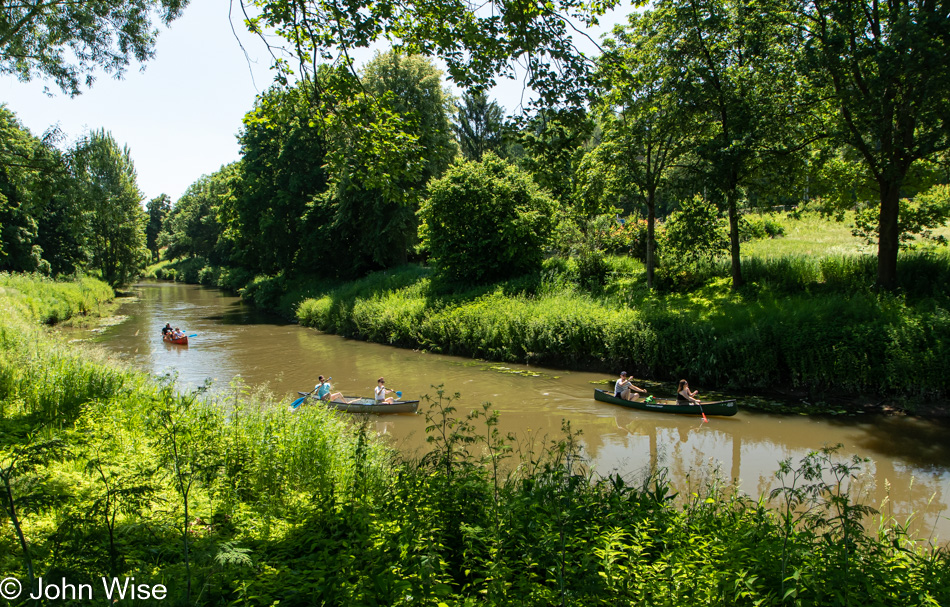
Canoeing a small river in a lush green environment or taking a 10-mile stroll along its banks is an antidote to staying in place, but so is reading a book as long as that’s occasionally done somewhere other than the same chair at home. Break out of stasis, shake your tree, and if the path ahead is blocked, get busy finding an alternative route or tear down the impediment so you might better find flow ahead. When life blocks your forward motion, you might need to learn how to portage. Of course, this presupposes that you’ve found the way to break out of whatever prison you may have been encumbered by in your early years.
If, as Jacques Lacan says, we really are the relationship with the other and not the ego of a narcissistic reflection seen in the mirror, then where do we go after reaching the point of serving the other? Do we begin the work of learning how to give to the many? Is this where we become the captain of the ship instead of the passenger, a participant instead of an observer? On epistemological journeys down the river of life, it is up to each of us to determine where we are going.
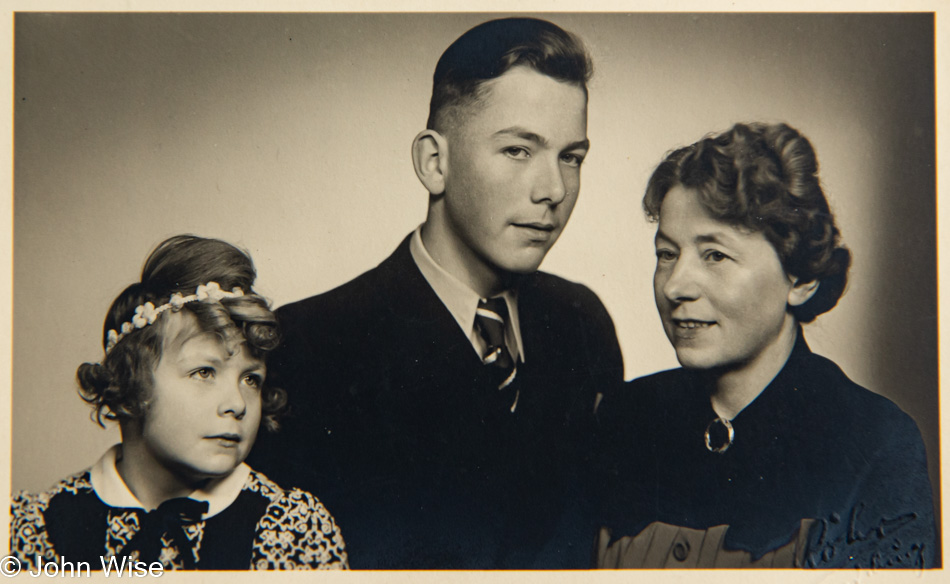
But sometimes, we never break out of the mirror and thus lose ourselves, blind to the torment of being a broken shell in an emotional prison. The core desire to be loved is not being satisfied as we look at our reflection and try to understand why we are unloveable by the people most important to us when we are so young. The denial of a parent’s love has consequences that extend to our final moments on earth. No matter how we try to arrive at the person who might meet the criteria for finding acceptance, it is the nagging voice of disapproval or rejection that haunts us to our end.
My mother-in-law Jutta, the young girl on the left, was a bitter woman when I met her so many decades ago. As I grew to know her a little better, she offered glimpses of this girl still living within her. Today, she is nearing her final days, and with me now able to fully appreciate the mother to my wife, I can say that when she passes, I’ll truly miss her.
Jutta was born a few years before World War II in Nazi Germany. By the time she was four years old, her country invaded Poland, and it would be five years later in that same land that her brother Friedhelm would die as a soldier. This photo was taken shortly before he went off to war. Their grief-stricken mother would never really recover from that loss, and in those dark days, she burdened her daughter by telling her she wished it had been Jutta who had died and not her beloved son. Upon turning ten years old, this young girl transitioned to the post-war reconstruction period, where her country struggled to discover a new identity. Her mother remained deeply entrenched in grief, ensuring that my mother-in-law would never live in confidence.
A self-righteous mother, a father removed from his career due to his Nazi affiliation, a deceased brother, and hard times were the reality Jutta would need to contend with. During university, on a path to becoming a doctor, Jutta got married, putting her career on hold. Children pushed that further away, but within just a few years of Caroline’s birth, the marriage fell apart, and Jutta was alone with herself once more. Depression remained her bitter companion.
While the tragic damage done to a young girl is viscerally displayed here, a parent can steal a child’s hopes and desires for love from even relatively innocent transgressions with the same outcome, leading their offspring to doubt their value to their mother or father. Yet, we do nothing as a modern society to help guide others into maturity and confidence so that before entering romantic relationships and bearing children of their own, they have at least some minor semblance of parenting skills.
For a short time in the early summer of 2021, I was the occupant of my elderly mother-in-law’s small apartment in Frankfurt, Germany. I was there to complete the task of sorting the artifacts of her life and trying to dispose of as much as I could without unceremoniously throwing her effects into the dustbin. It was here that I began to understand my sister-in-law and why she had requested I come over to lend a hand dealing with the clutter. All around me were the things that helped shape Jutta and tell some small part of the story of this woman, mother, and friend. These things then become the embodiment of a person who was and is loved.
Many of those personal treasures in her dwelling are nearly as old or older than Jutta, and upon those pieces rest her other collected belongings. This temple to her past ensured that she was always surrounded by memories of a time she was afraid of losing touch with. These items represented to her a hidden bridge to finding the love that had been lost along the way. Stored at the edges and within these keepsakes of Jutta’s existence are mementos that delighted her and kept her company in the many lonely hours she whittled away, trying to understand her anguish of needing to exist.
My mother-in-law was never the reason for this pain or her guilt of feeling she’d somehow done wrong by everyone in her life, but no one was ever going to convince her of that. Her guilt was the one thing she could own outright and was her deepest, steady companion. Her belongings couldn’t criticize her or lend complaints; on the contrary, they were the places she could find security and happiness. Her many books allowed her to enter conversations with great thinkers that offered glimpses of a kind of nirvana after turmoil was brushed aside.
Reading from the Koran, the Tibetan Book of the Dead, the Talmud, Carl Jung, and the many volumes that explore the work of Martin Luther, Jutta began to investigate questions that try to give insight as to why we are here and what purpose this life might offer. Just as God looks over humanity, Jutta’s memories look over her and are constantly judging and reassuring her. Like the torment of hell, our mistakes made, even without our knowledge of knowing what the transgressions were, become haunting reminders of how broken we are and, consequently, how deserving we are of others’ dismissal and disapproval.
I’m certain that Jutta studied these things to resolve her pain and inner dilemma, but over time, the constant loneliness drove her to flirt with the person she didn’t want to become. When not under the gaze of those who loved her, she resorted to self-destructive behavior that cared little for the here and now and instead dwelled in an idealized past. Fragments of perfect moments when she was alone with her loving father, her children, or her curiosity offered solace against the nagging fear that she was failing others as she had her mother. Through it all, though, was that glimmer of childhood innocence that screamed out, “Love me!”
This has me looking at my sister-in-law in a different light as she bore witness to over 50 years of her mother lost in sorrow. Early in Stephanie’s life, it was she who found her mother unconscious from a suicide attempt. From that point on, no one could ever say if that event changed Jutta, nor do I believe anyone checked on Stephanie to determine how that might have impacted her. Not long after that, the marriage that brought two children into being dissolved, and Jutta was on her own.
Jutta encouraged her daughters to be fiercely independent, likely with the intention that nobody should hurt them the way she’d been hurt. Unspoken love was the rule in their home and was assumed to be there, but it was never uttered, although everyone should know full well that we have to hear that we are loved. This situation worked to the detriment of my mother-in-law as her children were never really able to offer their mom what she so desperately needed. While both in later life have become her friends, and both deeply love their mother, Jutta has never been able to forgive herself for the torment her existence had on others. Maybe if everyone could have just said, “I love you,” things might have been different.
I witnessed Stephanie crying the hard cry as the thought of her mom passing this year struck terror in her heart. Something is missing for her as maybe she knows she wants to love her mother unequivocally, but she too carries the burden of being afraid that she’s done something wrong and deserves others’ rejection. To combat that fear, she exercises a heavy hand and makes herself indispensable to others so she can hold on to whatever internal value she can keep, just like her mom was holding on to mementos to keep herself whole.
Jutta was afraid for a long time of losing any of these things she surrounded herself with. What will Stephanie lose when the mother she surrounds herself with is no longer here? Stephanie shared with me that the reason this hurts so deeply is that she wants her sister to see her mom one last time, but I’d venture to guess that what she really wants is the opportunity to be absolved of the guilt regarding her transgressions and her own issues of letting others know how important they are to her. Stephanie was too young to understand why her mother nearly died and why her father left, and I think she was too young to understand where her rage was coming from regarding her younger sister, Caroline.
Wanting to love someone but keeping them at a safe enough distance that they can’t betray you and rip your heart out requires a fortitude of self-inflicted pain. The hurt you may have witnessed your own mother or father enduring is a horrible burden and cycle that has to be broken, but how do loved ones direct these broken souls to get the help they need? Confronting ourselves in our weakness is not something many enjoy as it exposes the mask we’ve hidden behind for too long. It becomes the main characteristic of how we perceive ourselves, while the mirror doesn’t divulge the truth.
Just below the surface, though, is the real person. They are screaming out for love in silence and occasionally in the painful quips of lashing out at others. Deep within, our inner hurt child is begging to be loved unequivocally.
Through fits and starts, I look to my immersion into the periphery of Jutta’s life for random insights into things I believe I can construe out of my own bias, and while much may be false, I’ll construct what I can, fabricate some, and maybe verify things with Jutta’s faulty memory cross-checked with the two girls. I’m trying to say that I don’t know if any of this will have an ounce of veracity, but it will be, to the best of my ability, the truth as I have desired to know it.
Maus und Schnecke, Mouse and Snail. Stephanie is the mouse that roars, while Caroline is the snail that takes shelter within. Stephanie raced into the world, sought the love of her mother and father, and in short order, saw love fade away as it was given in abundance to her new sister. After nearly losing her mother to the attempted suicide and watching her father walk away from everyone, the mouse felt vulnerable that the giants of love were stepping on her. Since those fateful days, Stephanie has been chasing after love but roaring at those to keep them just distant enough that she remains in control while trying her best to grab and store all the love she can find.
Caroline, on the other hand, had to learn to hide and protect herself, to move slowly and cautiously like a snail. Her sister didn’t understand why “The Little One” received so much attention, and so she embarked on a plan to ensure that Caroline knew who was boss and first in line for any morsels of attention that might fall to the floor. When Caroline went to school, she was younger than the others and small in stature, but she made up for that with a giant intellect. When life got the ugliest, Caroline turned inside, taking the pain with her and trying to inflict more upon herself than others were able to so she could prove to herself that their pain was minor to the strength she had to endure her own.
While Caroline turned to fortify her shell into a fortress through knowledge, Stephanie worried herself with running about seeking attention and getting it. Caroline’s shell grew thick, but her sister remained frightened that what she needed to survive might run out, which required new tricks to let people know that she was scurrying about their feet squeaking for their affirmation. Stephanie, more than anything else, wanted and needed love, but going about it through being fierce and loud has had its limits. Yet those around her love her dearly if only she could see and know it.
Over time, Caroline grew to witness others admiring her fortitude, resilience, and determination, which motivated her to travel much further than she might have thought possible. Along the way, she learned to embrace being out of her shell for extended periods of time and take risks that would expose her soft foot to being stepped on, but she knew by then that the pain would subside and she’d be stronger for it.
When Jutta gave the girls their nicknames, little could she have known how this would impact their characters or how the girls would fit their characterizations.
Stephanie goes about her life loudly to this day, commanding attention. She suffers from wanting to be heard, to be noticed, to be loved all the while unable to recognize all of us who want nothing more than for her to accept our love and stop trying to win us over. Letting us know how great she is, which we already know, becomes a bludgeoning weapon that ultimately has people wanting to pull away from her. Family is a fragile entity, and love is an apparently fleeting thing that people can take away or destroy, which in turn takes away and destroys parts of our happiness we rarely get to repair. Maybe the girls would have been better served with nicknames such as Loved and Fortunate.
When we fill our lives with the effects, trinkets, and things we believe we need to make our lives whole, do we leave enough space in that construct of artificial perfection for others to bring their stuff, emotions, and lives into our world? When does that loved one recognize that they are secondary to the physical possessions sitting on a pedestal, instead of their own emotional needs that beg for the same attention that those other things seem to deserve?
As I watch an old lady make space in her life for that very thing called living to leave her, it’s peculiar to watch someone else already building a shrine of remembrances. It appears that objects pulled in and attached to are more important than giving effort to understanding this other person’s needs for love. It is the shared memories and acknowledged emotional embrace that should coexist within one’s own personal tower of self instead of constructing some hollow monument of things lost in a horde of possessions.
Personal boundaries are discovered and made pliable by those who push back and gain our trust. Without tolerance for others to intrude into this personal space, we either become bullies or cower from those who might transgress that boundary. Not allowing pushback halts the bi-directional dialogue of growth that gives affirmation to the person who is telling the other that they are not feeling valued. The bully won’t hear something that might damage their bubble, while those who cower risk losing their identity to someone who cannot respect others’ pain.
How to break through these defenses and warn someone that a storm is brewing when they cannot see the hints that fall on deaf ears? Why should we even feel concerned? If this situation concerns loved ones, the wreckage of a world that collapses can produce greater damage that can befall those who are near the destruction. Inevitably, all things collapse, but how we act to preserve what’s really important will be the test of character that will take us down one path of potential continued well-being or the other where the bridge is washed out, and the abyss awaits us to meet its bottom.

Sound the alarm, ring the bell, borders are being crossed. My apologies if I’ve run anyone over, but good intentions were carrying me forward. Enthusiasm to live and forge a way ahead has me pedaling at a steady pace. We are going places that travel pathways totally unknown to those on a journey into themselves. It’s not that we can’t know where we are going, but uncertainty allows flexibility to stumble into discovery.
Humanity has built an illusion of intensity where we race from trend to trend, shop to shop, cash to cryptocurrency, and app to upgrade, but at the core of it all, we are just simple little creatures in need of what we’ve always needed, food, friendship, something to stimulate our senses, and a safe place to rest and recover. The urgency to do everything in haste is a valuable weapon against awareness, as that volatile human trait has the ability to disrupt things in chaotic ways. Awareness takes time and a steady gaze to find what’s important.
At this juncture in history, where the economy around mindless consumption is ruling our lives with advertisers and governments enjoying the windfall of complacency, many of us appear content to witness consumerism threaten to run us over. We are gazing at the shiny object, certain it will offer us just what we need, but can’t be bothered with the slow, steady march into ourselves.
Complacency and lack of self-awareness regarding important things allow us to miss the devil in the details. In any case, who can tell anyone what is important in an age of total banality, hysteria, and fear?
If you are one of the few questioning the ugly bean dip of mysterious goos with dubious cultural value layered within you, then you will first have to rid yourself of that wicked diet of predigested waste and replace it with intention. While intention is yummy and free, it’s not always easily accessible, and it’s surely not palatable to many of the other people on your new path, so be prepared to madly flick the lever, ringing the bell for others to get out of your way.
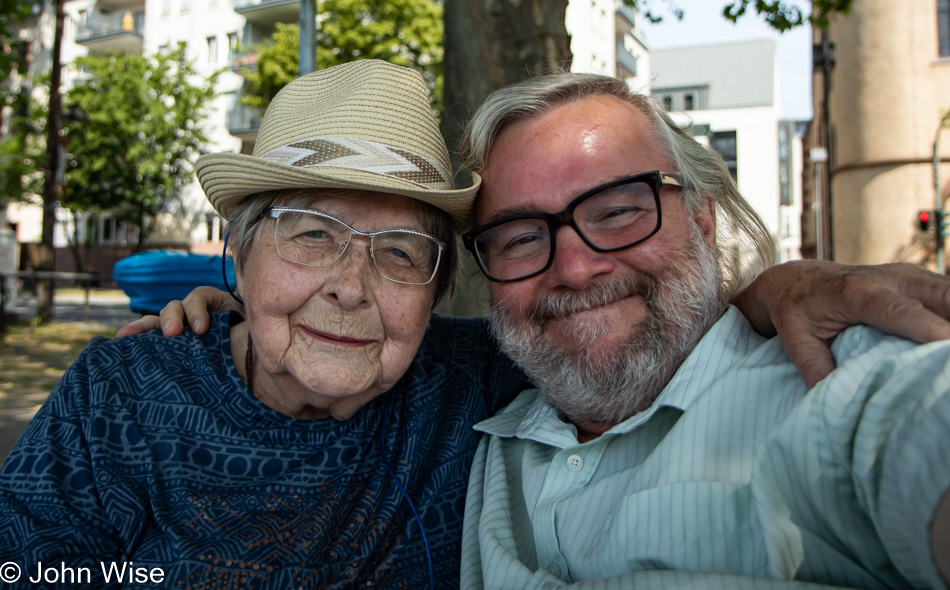
That shell you call you is the container of all you will ever be. Authenticity is not a guaranteed iteration of that person. Hell, you’ll never be really certain if you ever achieved a lick of authenticity, as that’s up to others to decide. And don’t be tricked by those too shallow to make that determination, as they may be somebody who flatters others for the sake of having that fake graciousness reflected back at them. Life is not an Instagram universe of influencers and likes.
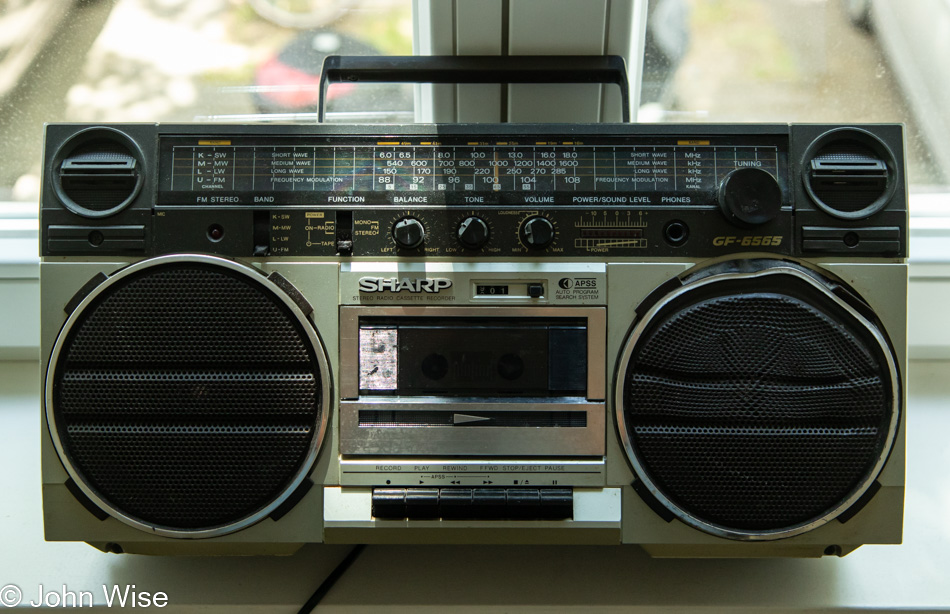
Dance, monkey, dance. Turn up the music and get in touch with the unthinking you that existed before structural conformity stole large parts of your ability to play in your imagination. When by yourself with your favorite tunes blaring you can let down the guard of appearing foolish. Jump around, twist and flail, grunt if you must so you can find your body and lose yourself in the beat. Music is an elixir that communicates with emotions, body, and mind simultaneously and does so without the filter of what is expected of you. You needn’t dance artistically; just let yourself go and feel the rhythm.
Own this sense of allowing your body the freedom to explore space and focus on what that feels like. Now, how do you bring that to yourself when standing in nature, before an ocean, or when diving into intellectual endeavors that threaten to overwhelm you? You have to accept that maybe none of it will make any sense at all with your first encounter, but that’s okay. Go back and enjoy this moment of absolute naivety as you are nearest to your original self before everything was brought into reason. When you dance with life, you are feeling the raw energy of your primal self, letting go of the bindings of what others want from you. You are at the pinnacle of it all; you are the bird celebrating flight.
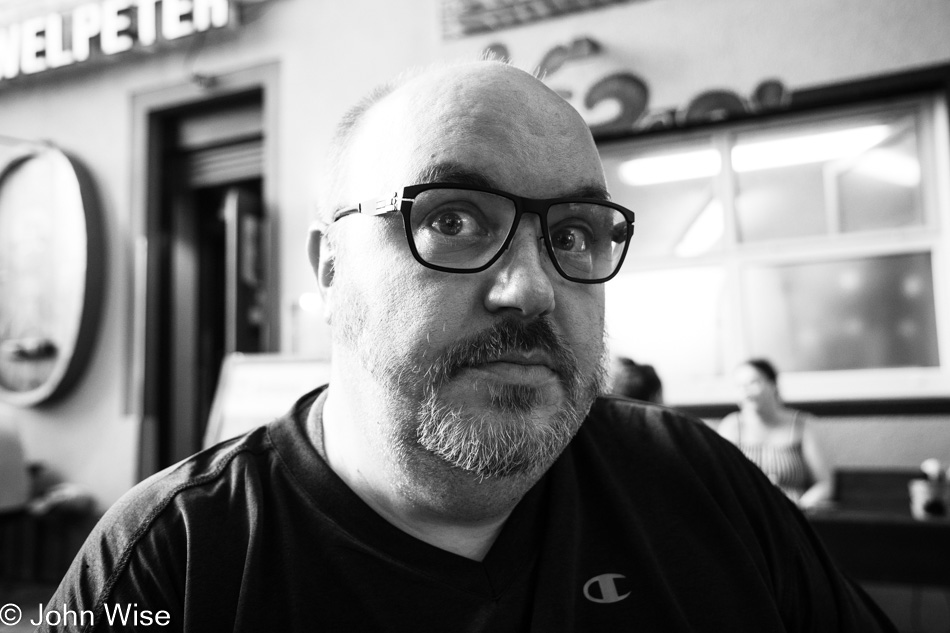
Don’t act surprised that I’m so intolerant of the inner sloth we’ve learned to live with. Get off that horse of narcissism and the languid sludge you rode in on and slap yourself awake. Maybe you see the world in black and white terms of us and them, but that’ll never fly as disruption is always just a step away, carved out of the many hues of life. When that person across from you is raising their eyebrows in surprise that you said something so stupid, they are not doing this because you are being provocative; they are likely reacting with incredulity that you just lowered both your and their IQs.
Better to bite your tongue, read, learn, explore, and dance until questions become more urgent than statements of assumed fact. Someday, you might learn that little of what we have to say will reach a meaningful state before our minds have been stuffed with things more meaningful than slogans, memes, and viral nonsense.
Oh my God, John, does everything have to be so serious? Well, not really, but I’m tired of waiting around to have dozens of curious people around me in public spaces instead of one or two at any given time. I’m in want and need of conscientious others who peel off the scab of my indignation and expose the gaping holes in my knowledge. No, I don’t mean that I need intellectual bullies to toss salt into my bleeding cavity of ignorance, but I would like to know why this thread of thinking appears to fail at adding embellishments to the emperor’s clothing.
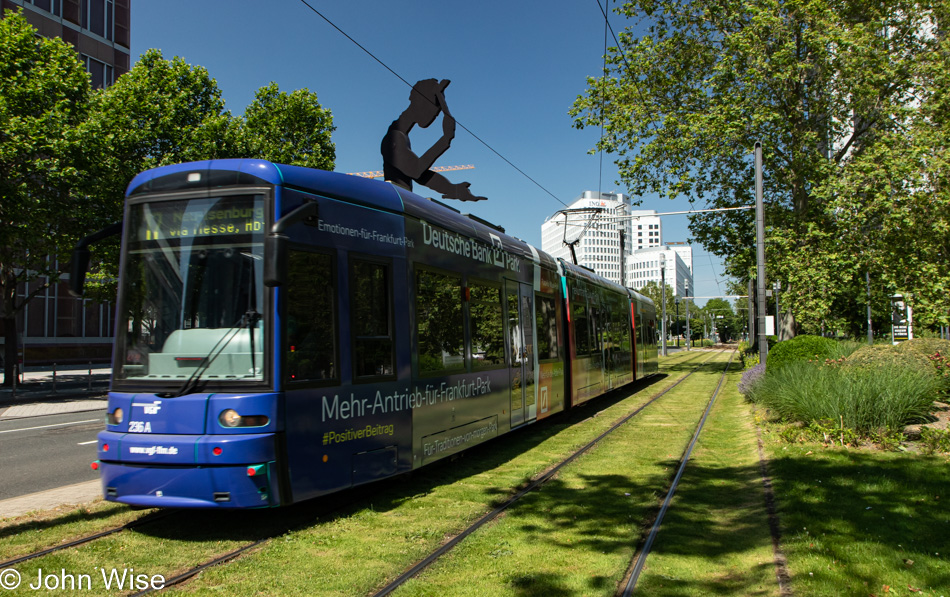
The payoff from such work and investment in one’s self is the ability to go further. The path may not be paved in gold, but lush green corridors under blue skies do lead to ideal locations to further explore what else awaits the mind of those who toil in the minutiae of personal discovery.
If I had to offer an inventory of what I’ve gained from filling my head over and again, I’d likely come up flat with nothing tangible to show as the reward for knowledge seems to be only more curiosity and greater uncertainty, although confidence in exploring the void feels less daunting. But isn’t that the ultimate treasure when collecting life’s lessons, that we are offered the raging desire to discover more?
But how does this begin to make sense? Life is obviously a journey into our physical world, and for some, it is also an opportunity to investigate our presence in reality that extends beyond the domain of what is seen. And what is vaster than curious humans alone in a cold, harsh reality that appears infinite and indecipherable? It is our imagination and symbolic representation of unknown and undiscovered potentialities that lay down the track into alien realms of thought and awareness.

“Baa, I’m a sheep happy to stand in my meadow under the sun with my head down, munching these tasty grasses.” Well, I suppose that’s okay as you offer me fodder to think about how your less-than-human presence amongst those of us trying to ascend the ideas of humanity might bring you and your kind into the flock of personal awareness.
Your myopia is my telescope. As I try to understand why I am not ewe, I have gained better visual and critical awareness that we exist on different plains of reality; I look to see further. My world is formed by words and ideas, while yours may as well be defined by the spot you are standing at chewing your cud and pooping on what you’ll eat tomorrow.
You are a machine of regurgitation, rechewing, and endless repeats of what you’ve already eaten a thousand times before. Don’t believe me? How many times have you watched the same program, played the same video game for a thousand hours, read the same book half a dozen times, visited the same vacation destination, and watched the same team play countless iterations of what is effectively nothing more than what you’ve grown familiar with? That cultural dead end is where you graze on the cud of your existence while your absence in my universe allows me the first taste of things never dreamt of as being possible.
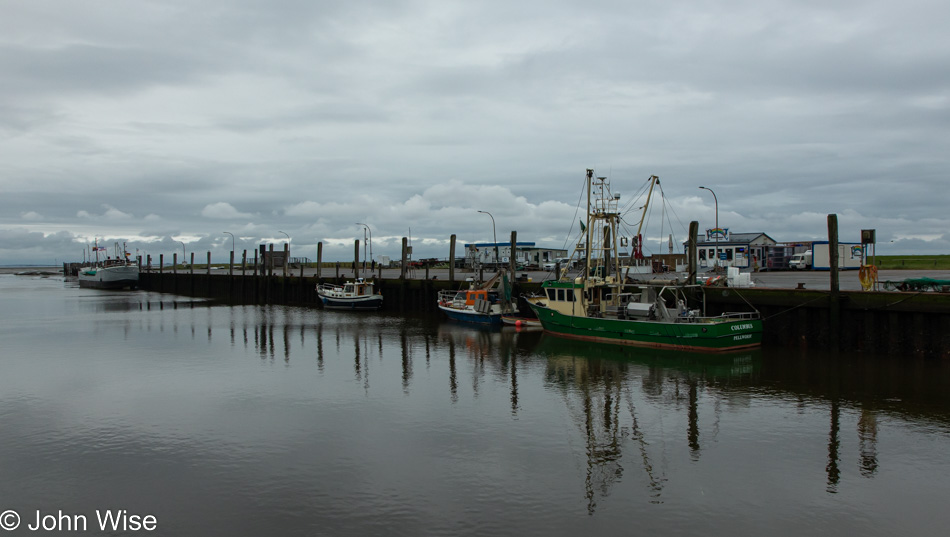
Speaking of dreams, my ship into the greater seas of discovery is being lured by the strangest song that asks me to leave behind my lament and focus on the beacon of what’s truly important. The ocean where those dreams are found extends past these shores into the clouds and the stars beyond. Navigation is a rocky affair as the sextant that might guide us has yet to be invented. Don’t allow the ensuing chaos and failures of taking a series of journeys that lead you nowhere to deter your ambition, as all directions will ultimately end in death at some point anyway. We may as well seize on to the current and allow ourselves to drift into our personal unknown waters.
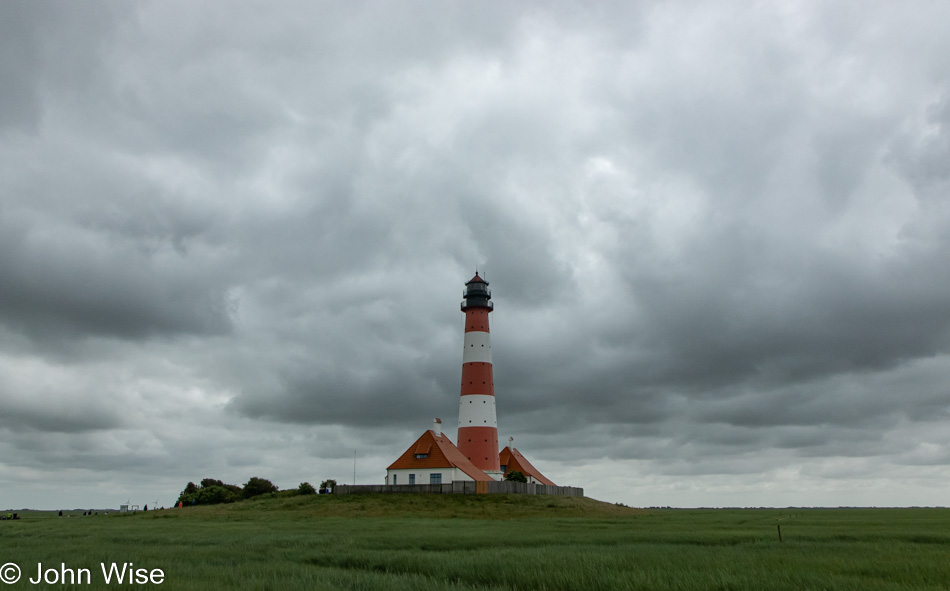
Don’t fret if you become lost, as the lighthouse of sanity has a way of pulling us back to safety. The storm rages in our minds, and our imaginations beg for interpretation. Someone has to make the bigger sacrifice of launching into the tempest. What is stopping you from climbing on board?
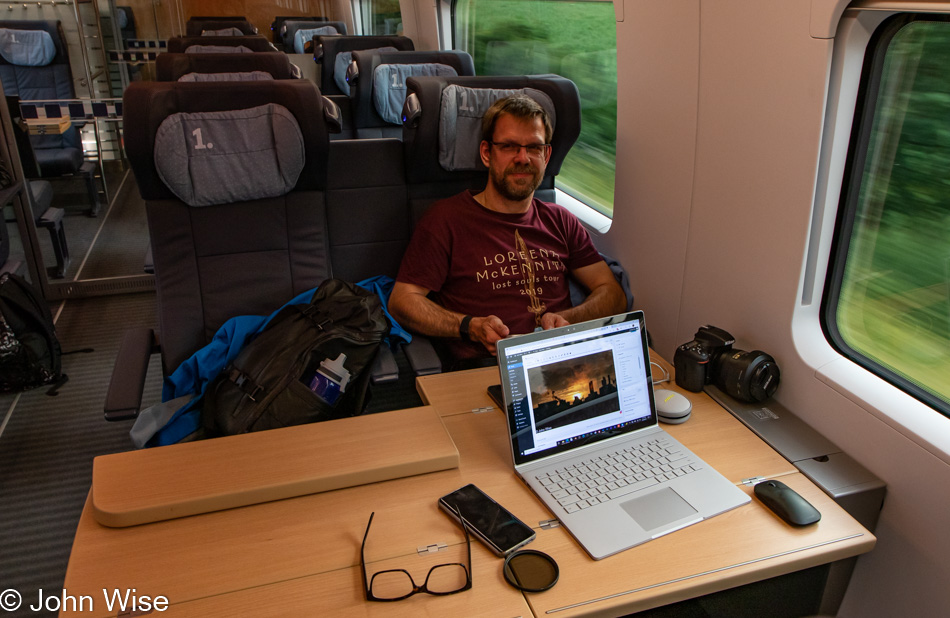
Do you need a friend to travel with you? There are many others who have made this journey. They are found in the works of many a philosopher, artist, theologian, psychologist, scientist, historian, linguist, theoretician, adventurer, inventor, writer, composer, or the best of mothers and fathers. Mentor up and lay into some Saussure, Bach, Nietzsche, Goethe, Luther, Lacan, Planck, Foucalt, Locke, or so many of the other great thinkers and creators that have come before us. If that is too daunting, find a nerdy, well-read friend who might be able to share some steps into critical and creative thinking.
We do not need to travel alone; as a matter of fact, we humans have always done better when we find ourselves within a community. The operative objective here is not to allow yourself to be relegated to a community of idiots, which is currently the majority of people’s method of inclusion. So it goes, I still will choose to stand outside the picture of the masses and go it alone if life demands it.
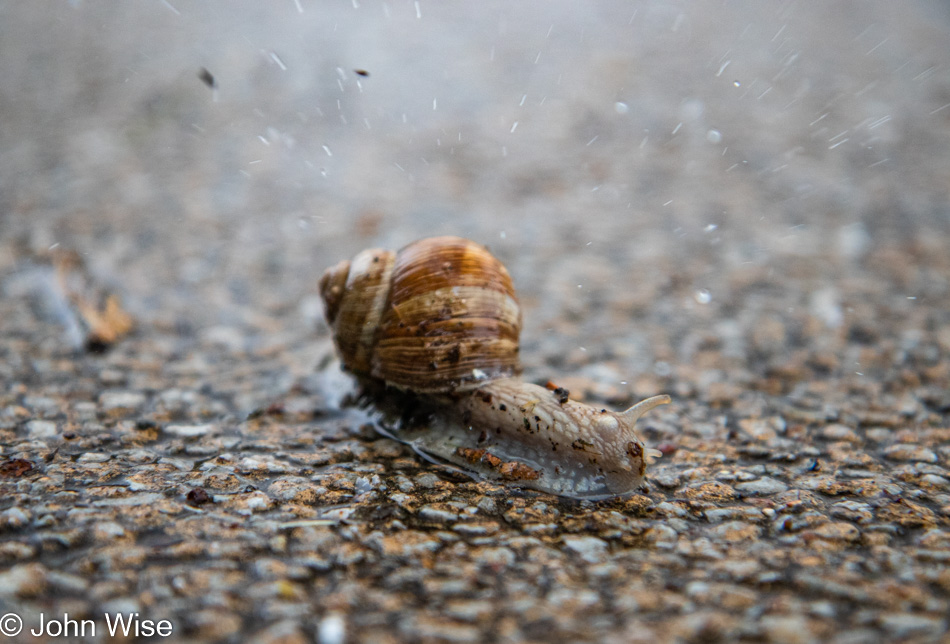
No matter how slow, no matter the fragile circumstances, I will inch along with my influences and mentors firmly attached to my back. Vulnerable in the precarious world of giants, I still move with some small amount of trepidation, but caution and awareness of the situation will hopefully carry me through. The imperative is that I don’t take refuge in my shell and forget to head out to enjoy the sun and rain, as although I have the essentials with me, I cannot exist in a void.

Like abandoned toys, we cast off people with nary a thought. Falling apart but still trying to smile they look on from the sidelines, waiting for someone to remember the joy they once brought others and hope they’ll be adopted by someone who cares. I care, but that’s not enough to offer the multitude a rescue plan that will embrace them and keep them warm.
In an age where family is largely secondary to career and economy, we make sacrifices in order to save ourselves. But the truth is that not all of us know how to pick ourselves back up when we feel forsaken and alone.
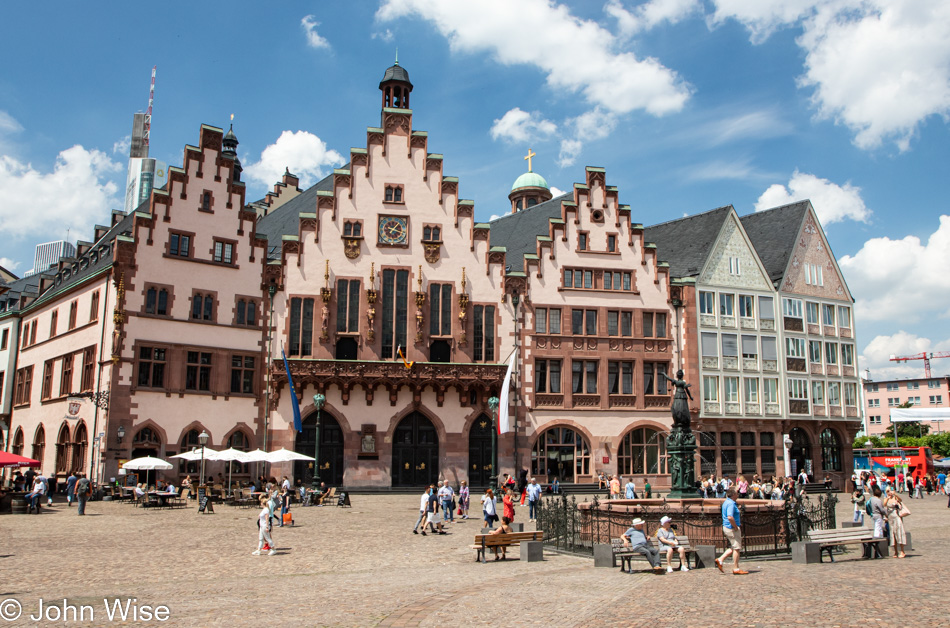
It is the work of communities and families to pull people together. Far longer than artifice has played a role in masking our humanity, we were tightly bound to one another for survival. Without ties, dreams, ambition, and empathy, we are nothing more than a bunch of random insects just trying not to die on our way to a nest that may or may not exist anymore.
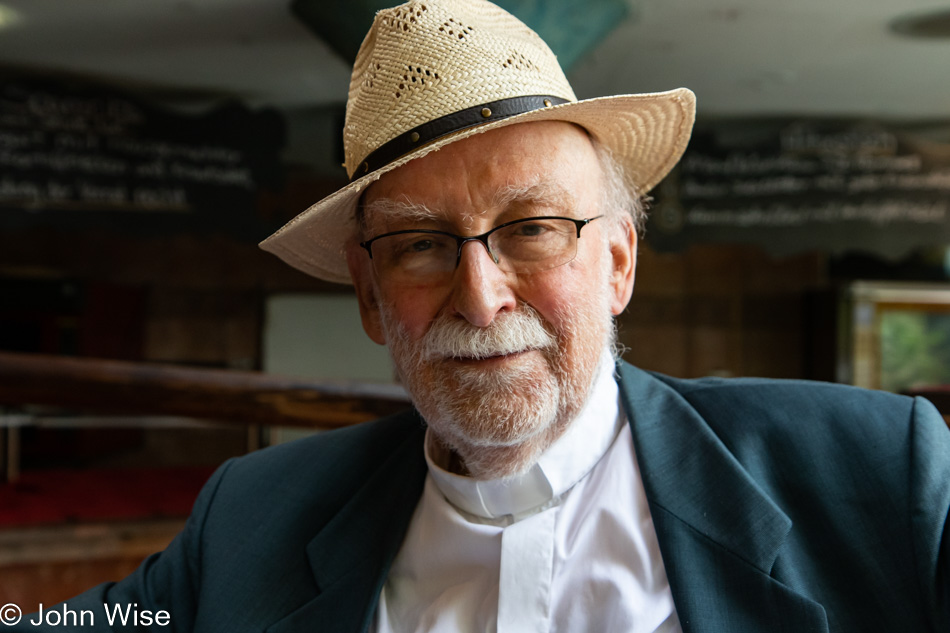
Remember the church? More importantly, do you remember or have you ever known the role God was playing in people’s lives? The church used to be where our souls celebrated the extraordinary every Sunday. God, well, I’m certain to step on some toes here, but God, for me, is the potential found in all humans. God is not a single entity or singular concept. Should a God, in fact, be a part of our reality, it is certainly not a supreme leader that would beg or bargain with us puny humans to use conduits for us to find or purchase our salvation. The lessons seem so obvious that we are supposed to rely on one another to find guidance, empathy, and ties to our communities and families and be able to manifest dreams of what we might accomplish in this kingdom.
Instead, we traded our souls for egos and started worshiping celebrities, icons, and politicians. Money became holy, the sacrament was found in the concerts, rallies, or events, while the gospel is celebrated as being popular. I’m not suggesting piety is the missing ingredient of what ails the Western world, but maybe if we understood that a part of us owes our creator the respect of helping its vassal best honor the gift we have in being alive, we’d treat ourselves and others much better than we do.
Mind you, I’m an atheist. I do not believe in a singular deity, but nor am I so lofty in my knowledge that I can explain all potential layers of realities, and don’t think for a second that I’m an agnostic. The agnostic doesn’t believe that the nature of God can be known, while I see that within our love of others and self, that thing we identified as an empathic God was, in fact, found in people and our voices. We brought love, music, art, and poetic language to describe the incredible profundity found in nature that transcends our violence and conflict. We were manifesting divinity.
When our better natures are at work, we are doing the Lord’s work, but that sanctimonious reference diminishes that we are exploring the divine on behalf of our community and family. We needn’t honor Jesus with adoration, as when we honor our neighbor and fellow humans, we are celebrating the children of God. We honor God when we bring our potential forward; we are showing that part of us that is God.
Treading into this territory feels wickedly stupid, as debating doctrine, canon law, and religious belief is such a fetid endeavor when power and money are dictating that the status quo remains unchallenged and reigns supreme. I can only draw the ire of the ignorantly devout who are blind to real compassion that doesn’t involve currency, but then again, I’m just a layperson, a regular idiot, without a conduit to any of your deities.
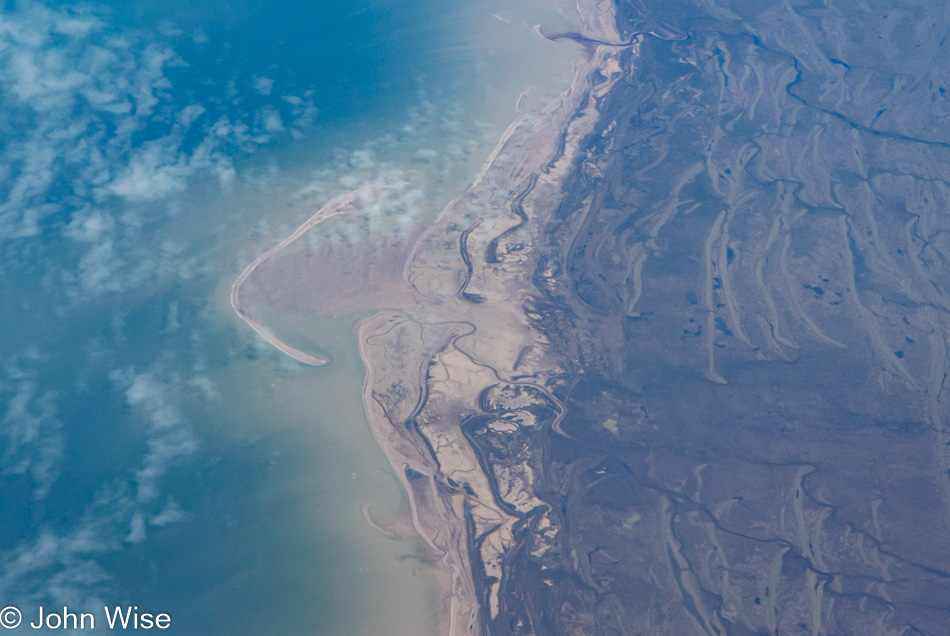
I cannot see my fellow man, woman, or child from high above. I cannot see animals, birds, fish, or insects from up here. The systems that exist at eye level supporting life and the invisible microscopic nature of things smaller than all of that cannot be appreciated unless we are down in the thick of it. Suffering in an abundant world is a testament to our pettiness and screams from the tower that we, in fact, murdered God and abandoned our souls. We do not care for God’s creation when we can so easily fail to bear witness to the reality of our world. We are selfish, merciless, and damned to walk alone, but I refuse; I want to reach out and grasp that hand of love and never stop experiencing the beauty found in the endlessly amazing nature of the earth, its creatures, and what we’re able to dream of with our heads up in the clouds.
